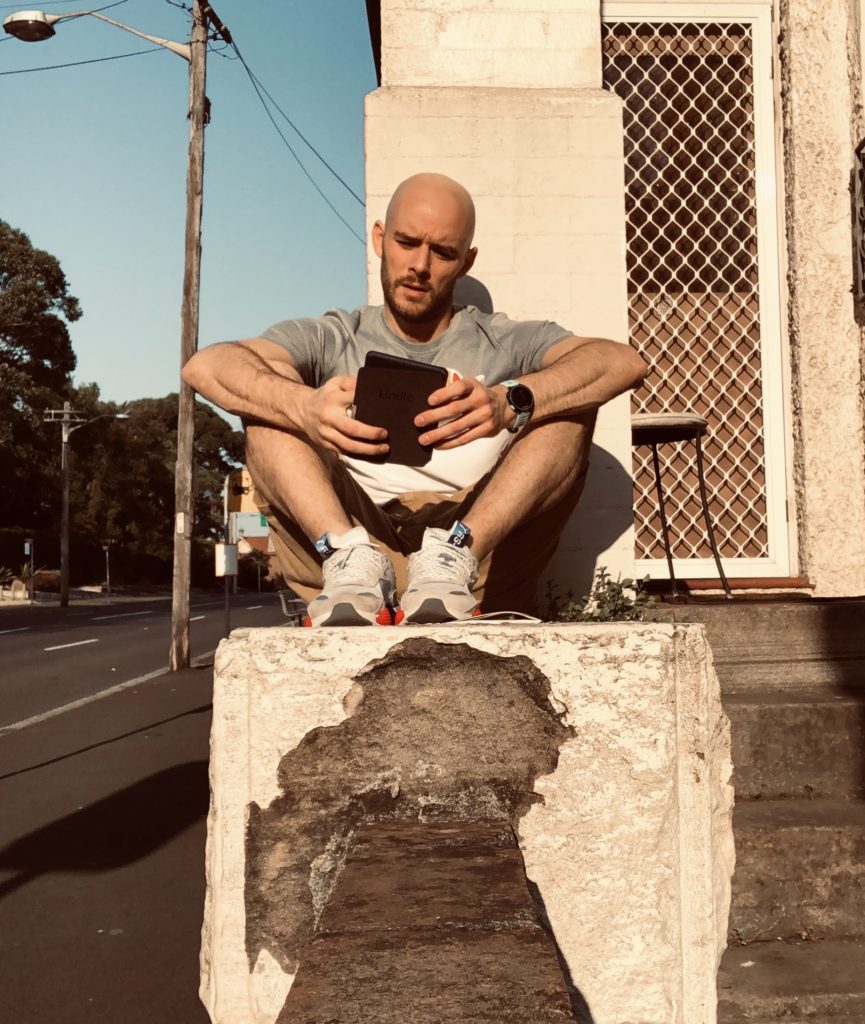
WHY ?
As a child, I understood that the school and I were not going to get along. When I repeated my 4th grade and saw all my friends leaving in the upper class, I acted for good that I would not make any more effort. And even less for French lessons.
I would like to take this opportunity to thank my parents who did everything to prevent me from falling at school. They managed to push me to the “High School Diploma”. A achievement applauded by the whole family. But my father is still convinced that there’s something fishy going on 🙂
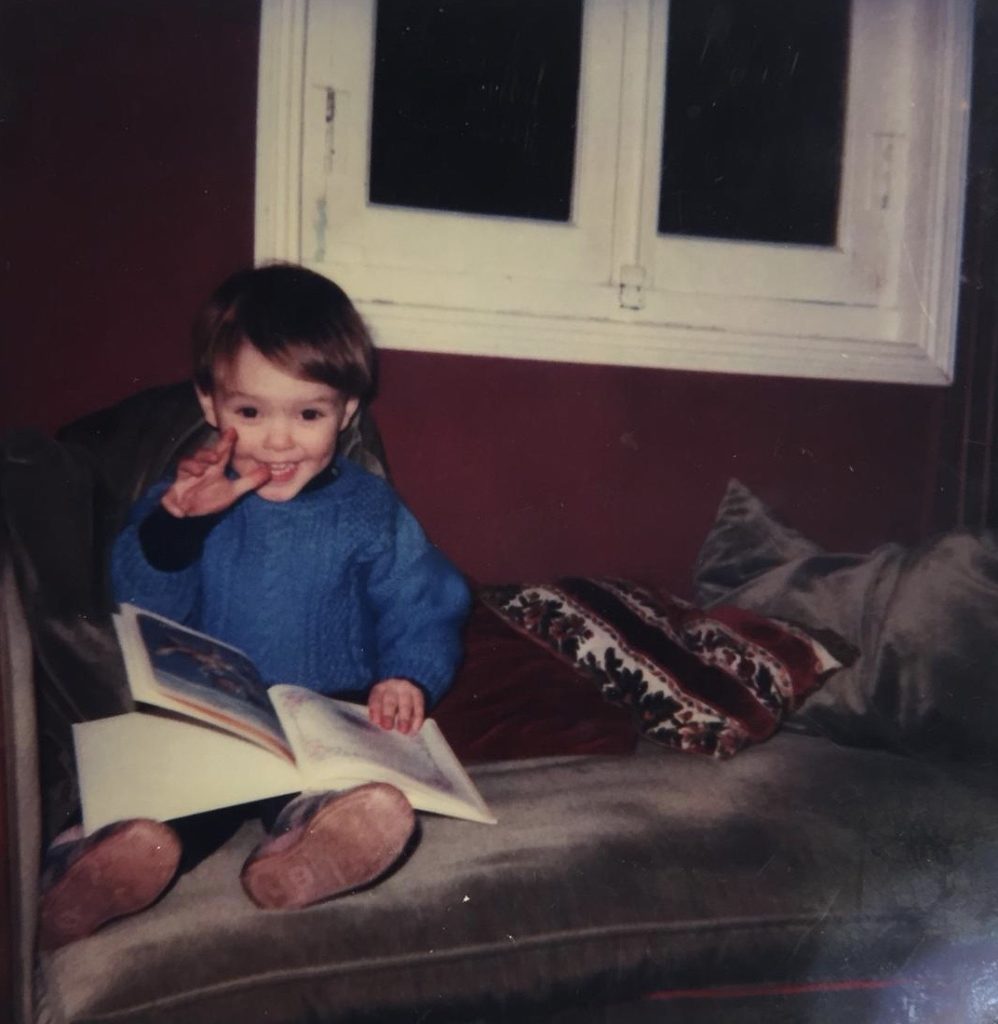
From the age of 18, I never took a book in my hands. I didn’t understand how you could “waste your time” reading when you could go to YouTube instead. It will take 12 years and the thirties crisis to see a change.
2016 > Read a book every 365 days
In 2016, I read a first book: the 4-hour week by Tim Ferrriss, a bestseller on personal development. I remember having hallucinated how many things I wanted to apply in my life.
2017 > Read a book every 30 days
The following year, I decided to create my first bucket-list, made up of 12 experiences, to get out of my comfort zone. “Read 1 book per month” is on the list. 12 books (personal development) later, I begin to understand why people like to read so much.
2018 > Read a book every 15 days
In 2018, I raise the level and decide to read a book every 15 days until the end of the year (25 books). I alternate between a personal development book and a fiction novel. To keep up, I put a system in place. I still see reading as a challenge but little by little, it becomes a pleasure.
2019 > Read a book every 10 days
In 2019, I start with on a book every 10 days (about 40 books). Despite a rough professional end of the year, I succeeded in my challenge with 37 books read during the year. Reading has become a real pleasure for me and a real daily habit.
2020 > Read a book every week
In 2020, I am trying to target the Holy Grail: “read 1 book per week”. 52 weeks in a year, I know but I’m already targeting 50, or a book every 7 days! I keep the same system by reading 8% in the morning and 7% in the evening on my Kindle. At the end of each month, I will share my reading list with you in this article. If you have any questions, come and ask me on Instagram!
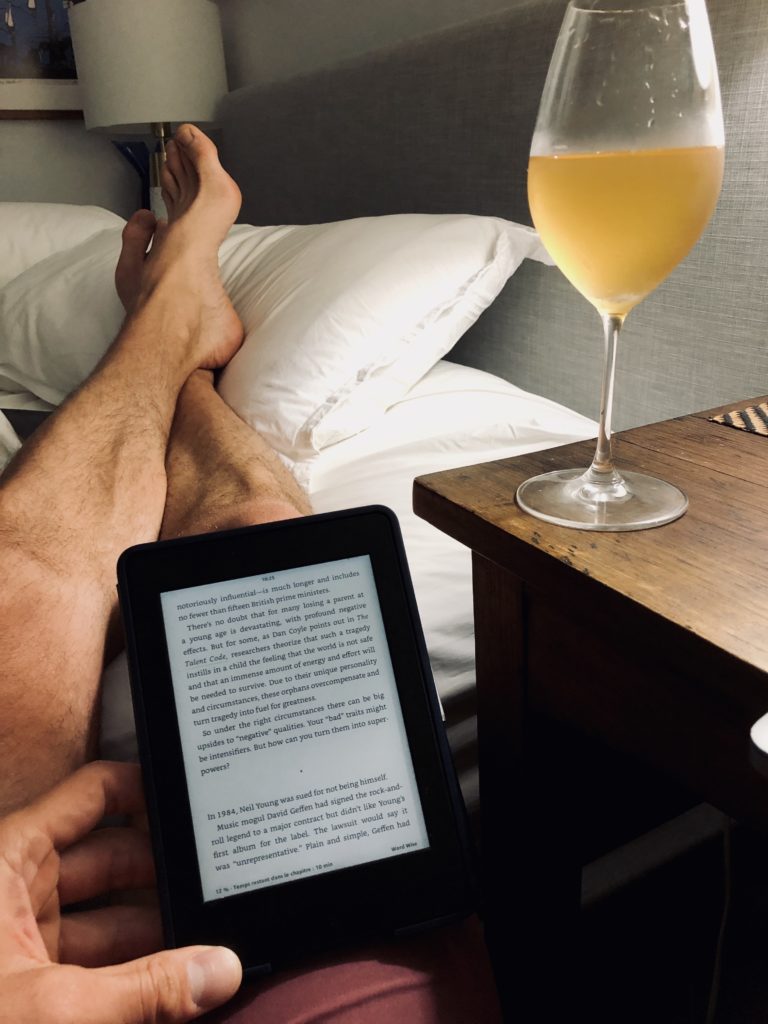
HOW ? (in 5 steps)
STEP 1> Define an “achievable” objective. If you read 5/6 books a year, don’t try to jump to 30 per year. As in sport, you will make yourself a snap.
STEP 2> Define the unit “one book”. Reading an 800-page book does not take the same time as reading a 100-page book. Personally, I opted for “one book = 500 pages”. So if I read a little 200-page book, I try to read another 200/300 pages.
STEP 3> Break down the objective into small steps. For example, if you want to read a 500-page book every month, that’s 17 pages to read per day. I therefore recommend that you read 10 pages in the morning before going to work and 7 pages in the evening before going to bed. Yes, it sounds stupid, but people don’t do it. to count on the weekend to “catch up” with your planning is a mistake. I speak knowingly.
STEP 4> Always have one or two books in advance on your book-list. This prevents you from taking 1 or 2 days between two readings, because you do not know on which book to continue
STEP 5> Read on Kindle (or another reader). For 3 main reasons: 1 / Easier to track the% of reading, 2 / You can always have it with you 3 / You can buy your next book at any time. So no excuse!
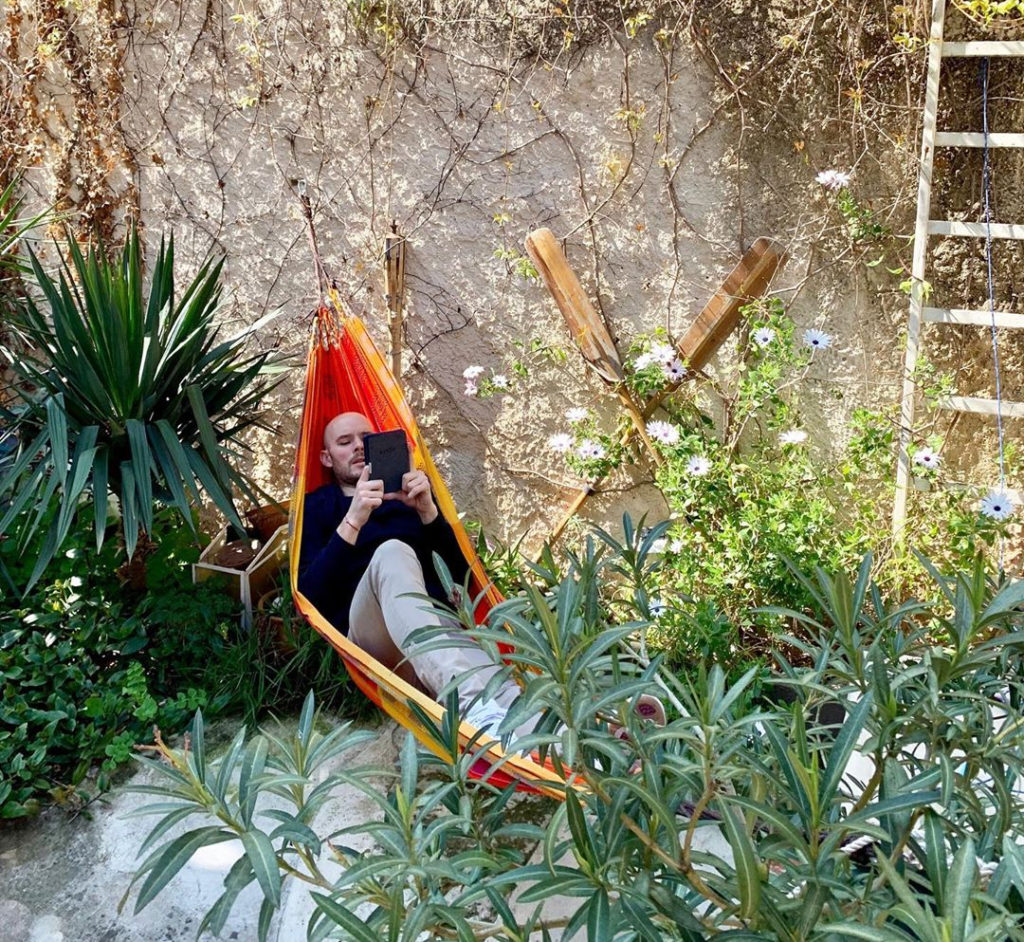
DECEMBER (5 books)
Factfulness: Ten Reasons We’re Wrong About The World – And Why Things Are Better Than You Think de Hans Rosling
This book just made it into the TOP3 of my favorite books! I literally devoured it in 2 days. What a slap in the face!
When we are asked simple questions about global trends like “why is the world’s population growing”, “how many young women are going to school”, “how many of us are living in poverty”, we consistently get the answers wrong. So wrong that a chimpanzee choosing random answers will consistently guess better than journalists, Nobel Prize winners and investment bankers.
It turns out that the world, for all its imperfections, is in much better shape than we might think. But when we worry about everything all the time instead of taking a fact-based view of the world, we can lose our ability to focus on the things that threaten us most.
Inspiring and revealing, filled with vivid anecdotes and moving stories, Factfulness is an urgent and essential book that will change the way you see the world.

A Life on Our Planet: My Witness Statement and a Vision for the Future de David Attenborough
After hearing about the author through his documentary on Netflix, I went to GoodReads to check out the ratings on his latest book. With a rating of 4.59/5, I didn’t hesitate for a second.
I didn’t learn much new about the future of our planet. However, if you want to learn a little about the subject, this book is a good first book to start with.
David Attenborough explains in a simple and understandable way, the great changes we will have to face.

The Mastery of Love by Don Miguel Ruiz
Using short illustration stories, Don Miguel Ruiz shows us how to heal our emotional wounds, regain the freedom and joy that is our birthright, and restore the spirit of play that is vital in relationships.
It addresses many important issues such as:
- Why “domestication” and the “image of perfection” lead to self-rejection
- The war of control that slowly destroys most relationships
- Why we chase love in others and how to capture love in ourselves
- How to finally accept and forgive ourselves and others
Ps: Don Miguel Ruiz is the author of the international best-seller “The Four Toltec Agreements”.

Quand le souffle rejoint le ciel by Paul Kalanithi
At the age of thirty-six, just as he was about to complete a decade of training in neurosurgery, Paul Kalanithi was diagnosed with stage IV lung cancer. One day he was an attending physician and the next he was a patient struggling to live.
What makes life worth living in the face of death? What does it mean to have a child, to nurture a new life as another fades away? These are some of the questions Kalanithi faces in this deeply moving memoir.
I can’t tell you the end of the book, but I did shed a tear. This book makes us realize that we will all die one day or another, that our existence on earth is ephemeral. Some may find this distressing, I find it a good motivator to enjoy every moment!

Freakonomics by Steven D. Levitt and Stephen J. Dubner
Which is more dangerous, a gun or a swimming pool? What do teachers and sumo wrestlers have in common? Why do drug dealers still live with their mothers? How important are parents really?
Freakonomics redefines the way we see the modern world. Personally, I loved the first half of the book and less the second half. I absolutely recommend the chapter on drug dealers, it’s pure genius!
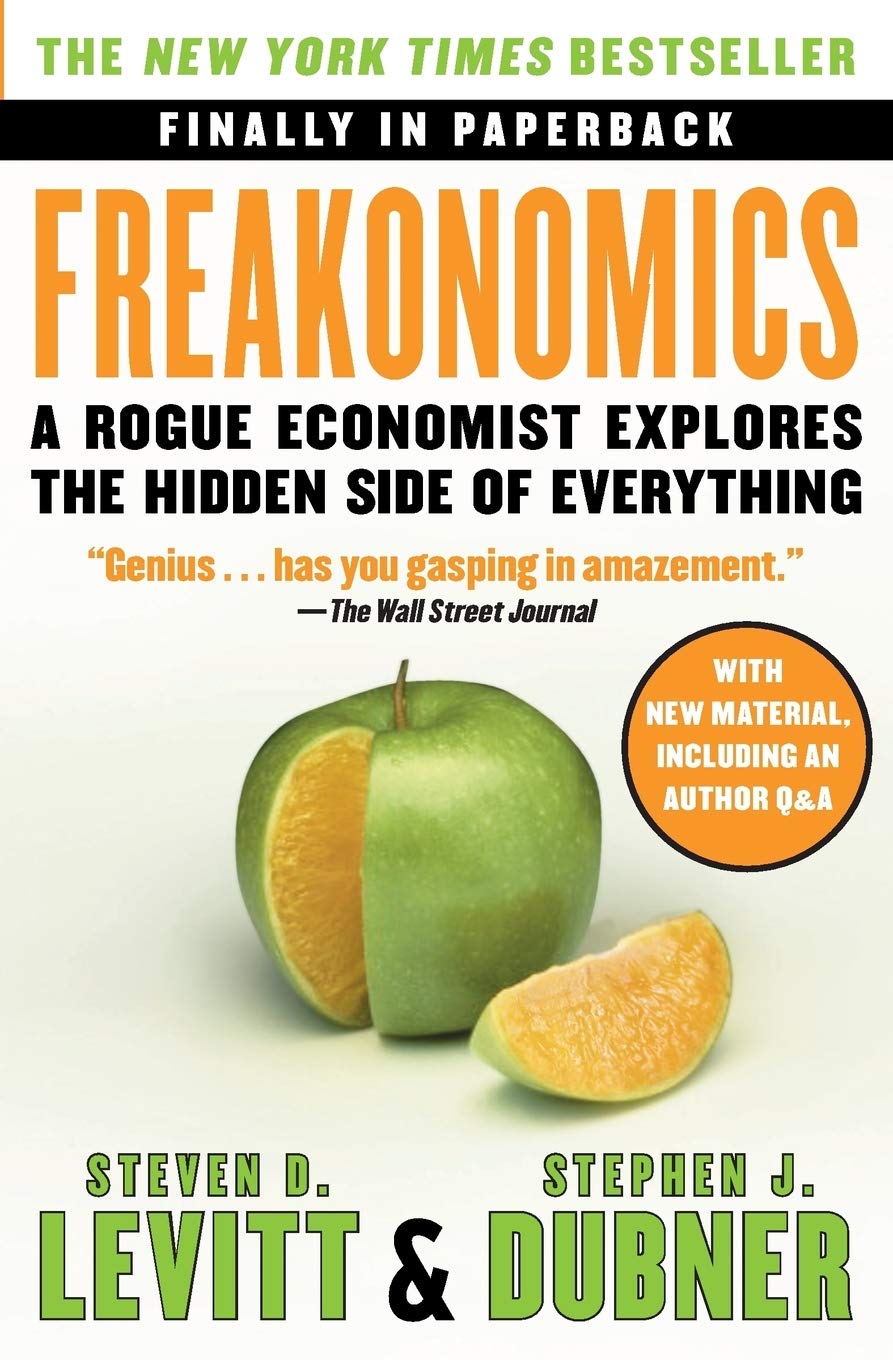
NOVEMBER (4 books)
Une éducation by Tara Westover
Tara Westover was 17 years old the first time she set foot in a classroom. Born into a family of Idaho “survivalists,” she prepared for the end of the world by stockpiling peaches and sleeping with her backpack “ready to go.”
Don’t laugh, because Tara is going to end up in the most prestigious schools in the world! This true story is gripping from beginning to end. Tara gives us a great life lesson and shows us the power of education: seeing life through your own eyes and having the will to be able to change it.
« N’apprends-tu pas à tes enfants à se laver les mains après être allés aux toilettes ? » Papa a mis le moteur en route. Le pick-up avançait lentement, il a fait un signe de la main. « Je leur apprends à ne pas se pisser sur les mains. »
Tara Westover – « Educated »
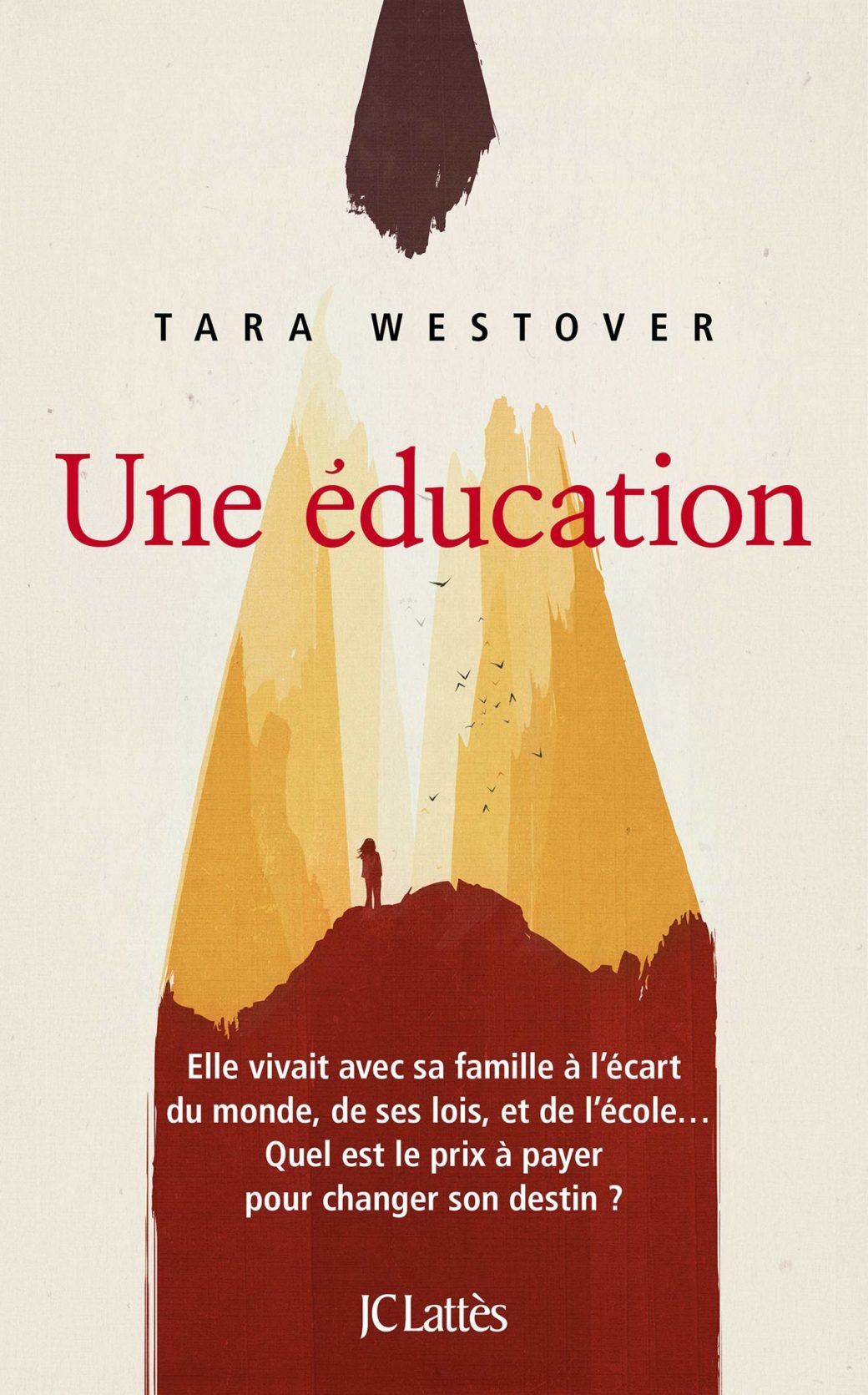
Pourquoi nous dormons by Matthew WALKER
The book starts off strong with a sentence that hits you right off the bat: “Regularly sleeping less than six or seven hours a night destroys your immune system and doubles your risk of cancer.”
I knew I didn’t know anything about sleep. Every paragraph is going to be a huge slap in the face. Just like when I read “How Not To Diet”, I am stunned by our lack of knowledge about one of our most vital functions to our survival.
I knew that lack of sleep is a determining factor in the development of Alzheimer’s disease, depression, anxiety or weight gain. But I had no idea that there were really “morning/evening people”, 20 to 30% caffeine in decaffeinated beverages, or an increased number of accidents and heart attacks when we switch to daylight saving time (i.e. with one hour less sleep).
A book to read ABSOLUTELY!
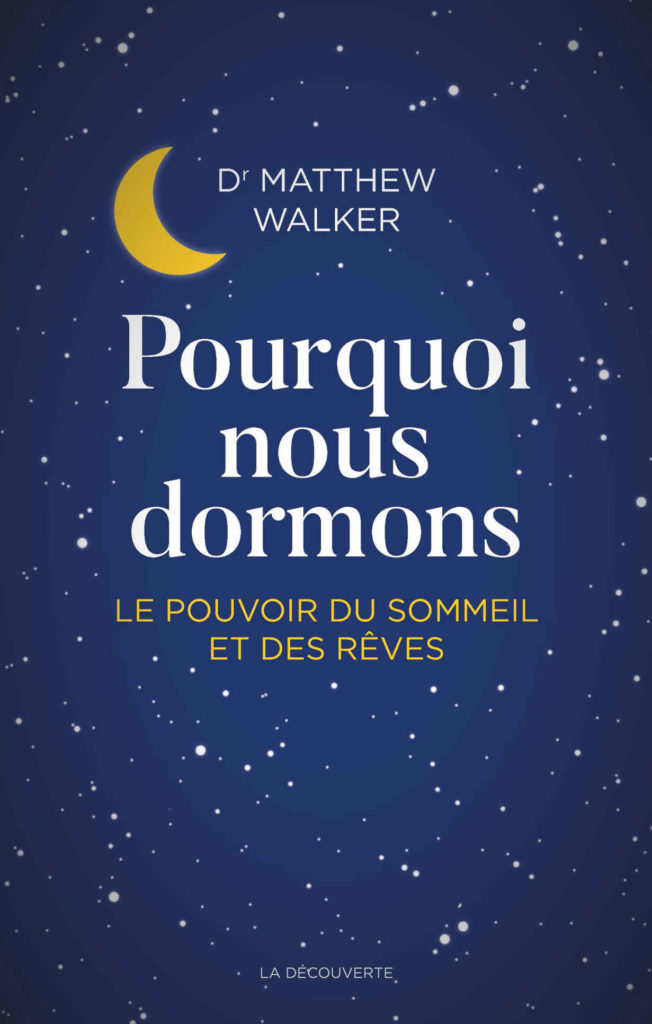
Les nouveaux nomades: Toujours ailleurs, partout chez eux de Maxime Brousse
After being recommended to me, I finally fell in love with it. I had a big doubt and it was confirmed. Frankly, we don’t learn much in this book except that there are three kinds of nomads: Vanlifers, “tinistes” and digital nomads. Nevertheless, we like the little quotes that punctuate the chapters.
Qui est le plus heureux, l’homme qui aura bravé la tempête de la vie et vécu, ou celui qui sera resté en sécurité sur la berge et se sera contenté d’exister
Dieu se rit de ceux qui maudissent les effets dont ils chérissent les causes.
Le seul moyen d’affronter un monde sans liberté est de devenir si absolument libre qu’on fasse de sa propre existence un acte de révolte.
Albert Camus
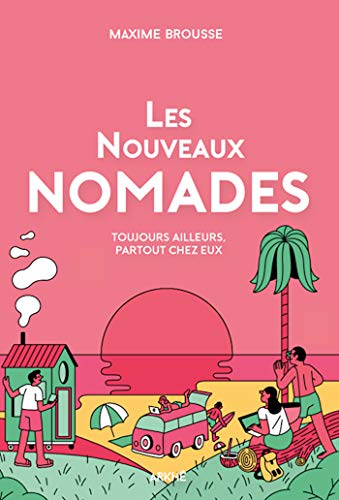
Foundation and Earth by Isaac Asimov
I did it! It took me almost 6 months to finish the “Foundation” series. With the 6 volumes of the “Robot Cycle” series, I am now at 13 books by this incredible writer.
It is no wonder that George Lucas was inspired by these works or that Apple is producing a series on the Foundation series. I will only recommend you to start in the right order for maximum pleasure.
- Les Robots
- Un défilé de robots
- Les Cavernes d’acier
- Face aux feux du soleil
- Les Robots de l’aube
- Les Robots et l’Empire
- Prélude à Fondation
- L’Aube de Fondation
- Fondation
- Fondation et Empire
- Seconde Fondation
- Fondation foudroyée
- Terre et Fondation

OCTOBER – (3 books)
How Not To Diet: The Groundbreaking Science of Healthy, Permanent Weight Loss by Michael Greger
This book made it into my ALL-TIME TOP5. Completely mind-blowing, completely captivating. In the same vein as “How not to die”, Michael helps us understand how to eat based on scientific facts.
I literally annotated 2/3 of the book. Let’s face it, it is very dense with +600 pages of studies and figures. You have to want it to read it all and to digest it. My advice is to start with more “affordable” books on nutrition like « Food Rules: An Eater’s Manual ».
When you are ready to change your eating habits and convinced that what you know… is that you don’t know much (like me a few months ago), then go ahead and conquer this big book!
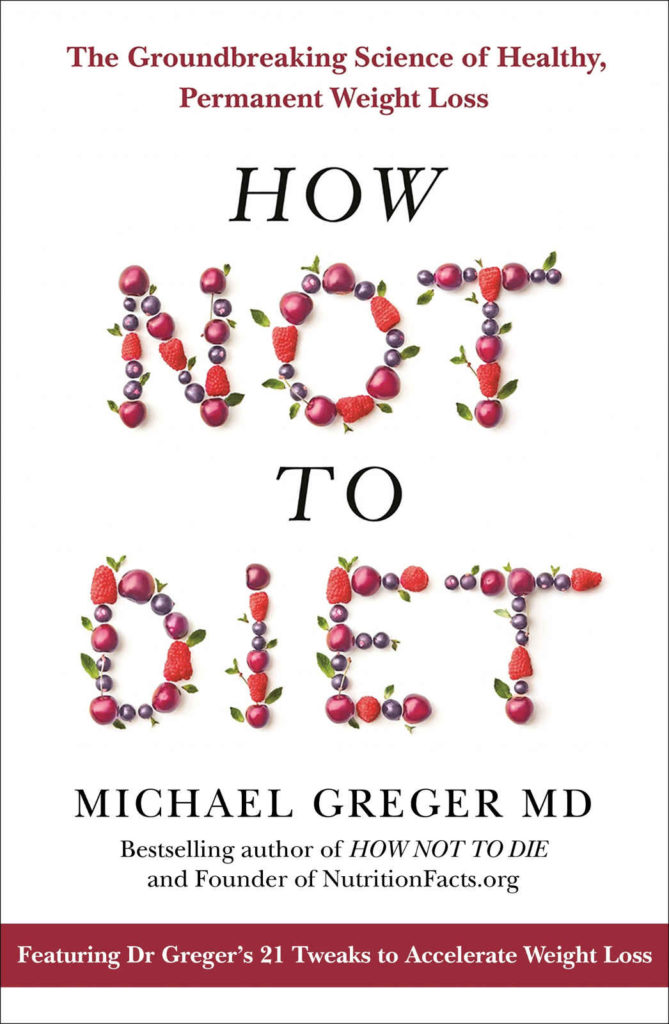
The Psychology of Money: Timeless lessons on wealth, greed, and happiness by Morgan Housel
In this book, Morgan shares 19 short stories exploring the strange ways people think about money and to better understand this important topic in our everyday lives.
It is an easy read with many paragraphs to take with you. The little quotes that punctuate the book are very nice.
The premise of this book is that doing well with money has a little to do with how smart you are and a lot to do with how you behave. And behavior is hard to teach, even to really smart people.
Morgan Housel
The ability to do what you want, when you want, with who you want, for as long as you want, is priceless. It is the highest dividend money pays.
Morgan Housel
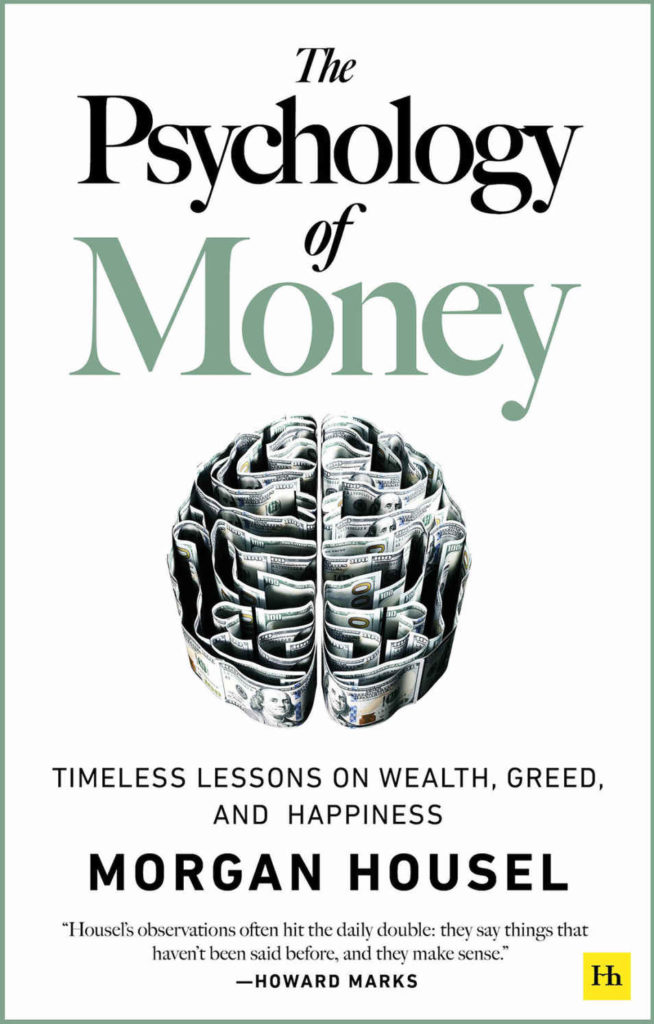
How Not To Die: Discover the Foods Scientifically Proven to Prevent and Reverse Disease by Michael Greger
This book changed my life. Literally. Simply put, this book is a compilation of all the scientific studies that can be found on nutrition. As the chapters progressed, I applied the recommendations from the scientific facts to my life. The results are simply amazing (see picture).
Michael Greger, founder of NutritionFacts.org, reveals the groundbreaking scientific evidence behind the only diet that can prevent and reverse many of the causes of death related to what we eat. It explains why doctors are good at treating acute illnesses but bad at preventing chronic diseases.
To read this book is to take the red pill from The Matrix, to discover the truth about one of the most important things in our lives: food. What we put in our mouths several times a day is our main source of energy but also our main cause of death. It’s time to find out what science knows!
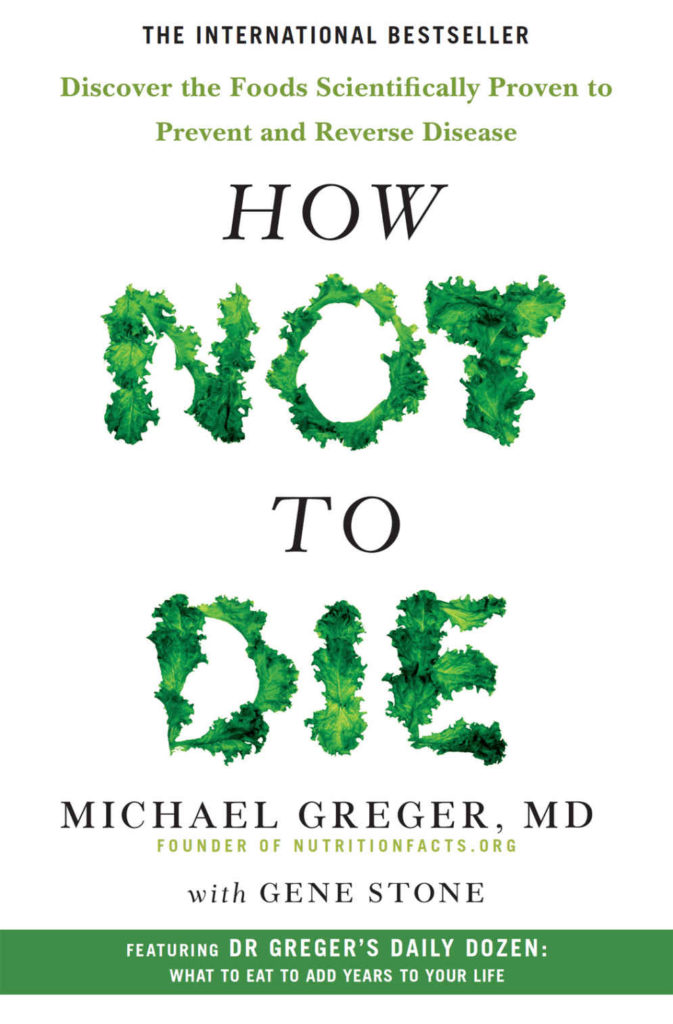
SEPTEMBER – 4 BOOKS
Le cycle de Fondation, I : Fondation by Isaac Asimov
I can’t get enough of this 7-volume story written by one of the greatest science fiction writers of all time. The seven original short stories appeared between 1942 and 1950 in Astounding Science Fiction. At the beginning of the 1950s, the publisher collected these short stories and published the fundamental trilogy: Foundation (1951), Foundation and Empire (1952) and Second Foundation (1953).
After about thirty years, several novels were added to it, fleshing out the original cycle downstream and upstream of the chronological period dealt with in the latter: Fondation foudroyée (1982) and Terre et Fondation (1986) and after Prélude à Fondation (1988) and L’Aube de Fondation (1993).
The order in which the Foundation Cycle is written is therefore not the same as its chronological order, which is as follows:
- Prelude to Foundation
- The Dawn of Foundation
- Foundation
- Foundation and Empire
- Second Foundation
- Foudroyée Foundation
- Land and Foundation
However, the first two novels describe the genesis of the Foundation and can be considered as the original nucleus of the cycle; the next five appear as extensions of the latter.
According to Asimov, his work would have influenced George Lucas for his Star Wars universe. Just that!

Foundation and Empire by Isaac Asimov
So I decide to continue on my way with volume 2 (so number 4 according to the chronology).
While the crises that shake the Empire redouble in violence and announce its definitive collapse, the Foundation created by the psychohistorian Hari Seldon to safeguard civilization becomes more and more powerful, naturally arousing covetousness and annexationist aims.
This book announces the appearance of a mysterious and invincible conqueror, nicknamed the Mule, whom Seldon’s plan had not foreseen .
Always and again, only happiness!

Les couilles sur la table by Victoire Tuaillon
Quite a book. As a man, you have to be hooked when reading this book because it shakes. With each chapter, you get a slap in the face when you realize what you find hard to believe.
But at the end of the book, you really feel like you’ve learned something and want things to change. At least on your own level, because it starts by changing yourself.
A book for anyone who has questions about themselves. And for those who don’t yet. Thank you Adrien / Maud for this recommendation.

The Almanack of Naval Ravikant: A Guide to Wealth and Happiness de Eric Jorgenson
Thank you Ulysse for this recommendation. This book has just entered the TOP3 of my readings for the year and easily in the TOP5 of all my readings.
Naval Ravikant is an entrepreneur, philosopher and investor who has captivated the world with his principles of building wealth and creating long-term happiness.
The Naval Ravikant Almanac is a collection of Naval Ravikant’s wisdom and experience over the past ten years, shared as a compendium of his most insightful interviews and poignant reflections.
MUST READ!

AUGUST – 4 BOOKS
How To Win Friends And Influence People by Dale Carnegie
Since its release in 1936, How to Win Friends and Influence People has sold more than 15 million copies. Dale Carnegie’s first book is a timeless bestseller.
It includes the six ways to make people like you, the twelve ways to win people to your way of thinking, and the nine ways to change people without arousing resentment. Yes, it’s a bit like manipulation!
Ps: I’ve read the “How to make friends in the digital age” version and I’m not sure it was a good idea. I think the original 1936 version must have been nicer!

L’aube de Fondation by Isaac Asimov
Completed just before his death, “L’aube de Fondation” is the crowning achievement of the life of a great writer, a testimony to the creative genius of Isaac Asimov. It features Hari Seldon as he strives to perfect his revolutionary theory of psychohistory.
I have devoured this story once again in a few days. It’s a real pleasure to follow the evolution of the characters imagined by Issac. Each new book allows us to take a step forward in time, to observe the fall of the Empire and the evolution of an entire galaxy.
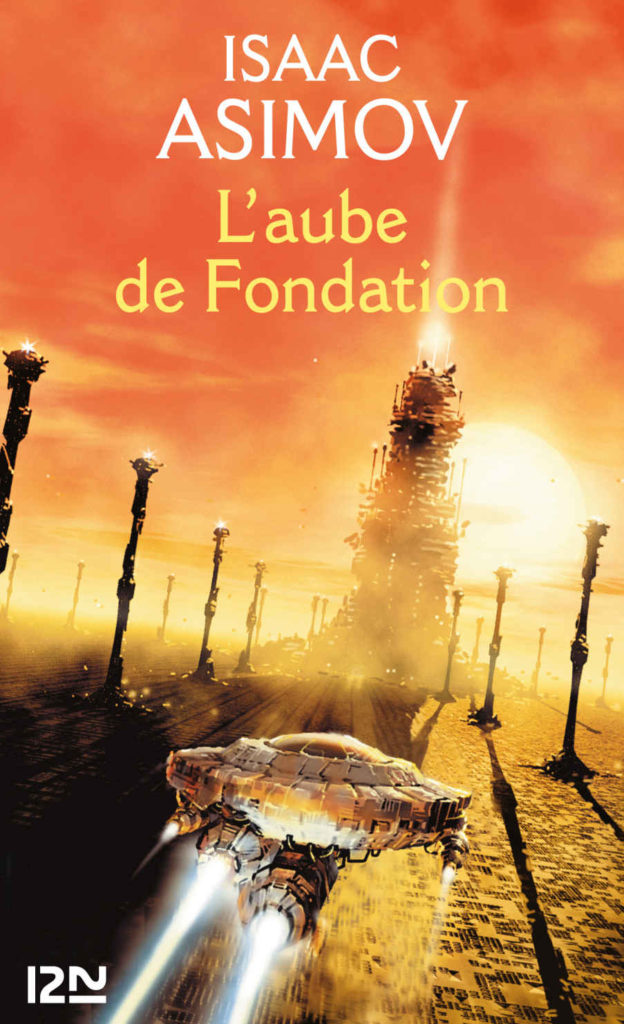
Principles: Life and Work by Ray Dalio
I have just finished the book “Principles: Life and Work” by Ray Dalio. I would like to share with you the principles that caught my attention. But first of all, a bit of context!
In 1975, Ray Dalio founded an investment firm, Bridgewater Associates, out of his two-bedroom apartment in New York City. Forty years later, Bridgewater has made more money for its clients than any other hedge fund in history and grown into the fifth most important private company in the United States, according to Fortune magazine.
Along the way, Dalio discovered a set of unique principles that have led to Bridgewater’s exceptionally effective culture, which he describes as “an idea meritocracy that strives to achieve meaningful work and meaningful relationships through radical transparency.”
I have made a non-exhaustive list of the best passages (in my opinion) in my newsletter : « If you limit your goals to what you know you can achieve, you are setting the bar way too low ».
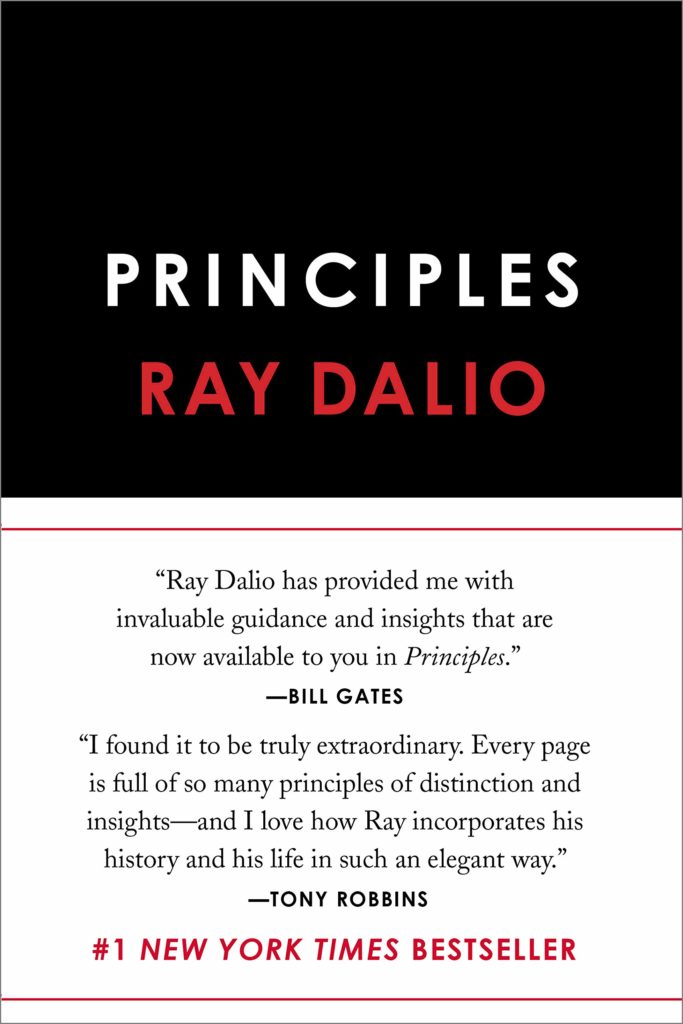
Prélude à Fondation by Isaac Asimov
Finally, I’m going to tackle the “Foundation Cycle” series, a work of science fiction written by Isaac Asimov which “consisted in writing a historical novel of the future”. This series was awarded the special Hugo prize in 1966 for the best science fiction/fantasy series of all time.
I say “finally” because I had devoured the series “Cycle of Robots” and Fondation is the continuation of this series. And I’ve just learned that Apple+ has announced that it will be adapting the cycle as a series, with a release planned for 2021.
What happiness!
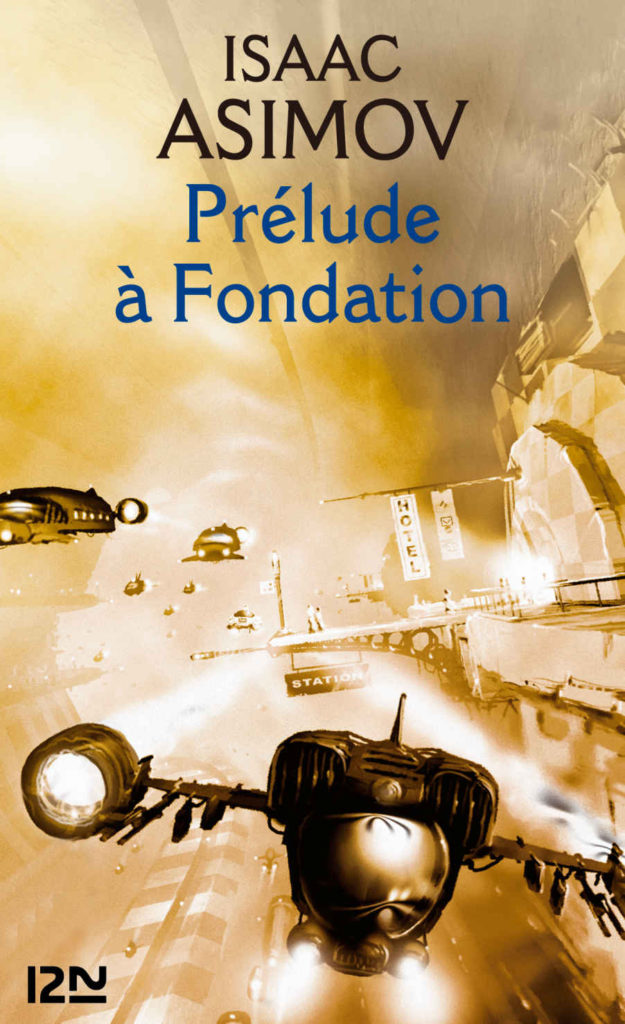
JULY – 4 BOOKS (2 “small” counts as 1)
Food Rules: An Eater’s Manual – Michael Pollan
I discovered this incredible writer/journalist earlier this year. He released an audiobook on caffeine which fascinated me and made me want to stop drinking coffee for 30 days.
“Food Rules” is a little 100-page book that can be read in one go. Michael explains in a very simple way the main principles of nutrition that we should all know (and apply in our lives). Eating in our time has gotten complicated.
The book gives us 64 practical advices to follow and I will share my favorites with you:
- Don’t eat anything your great-grandmother wouldn’t recognize as food.
- Avoid foods you see advertised on television.
- It’s not food if it arrived through the window of your car.
- Don’t eat breakfast cereals that change the color of the milk.
- Eat when you are hungry, not when you are bored.
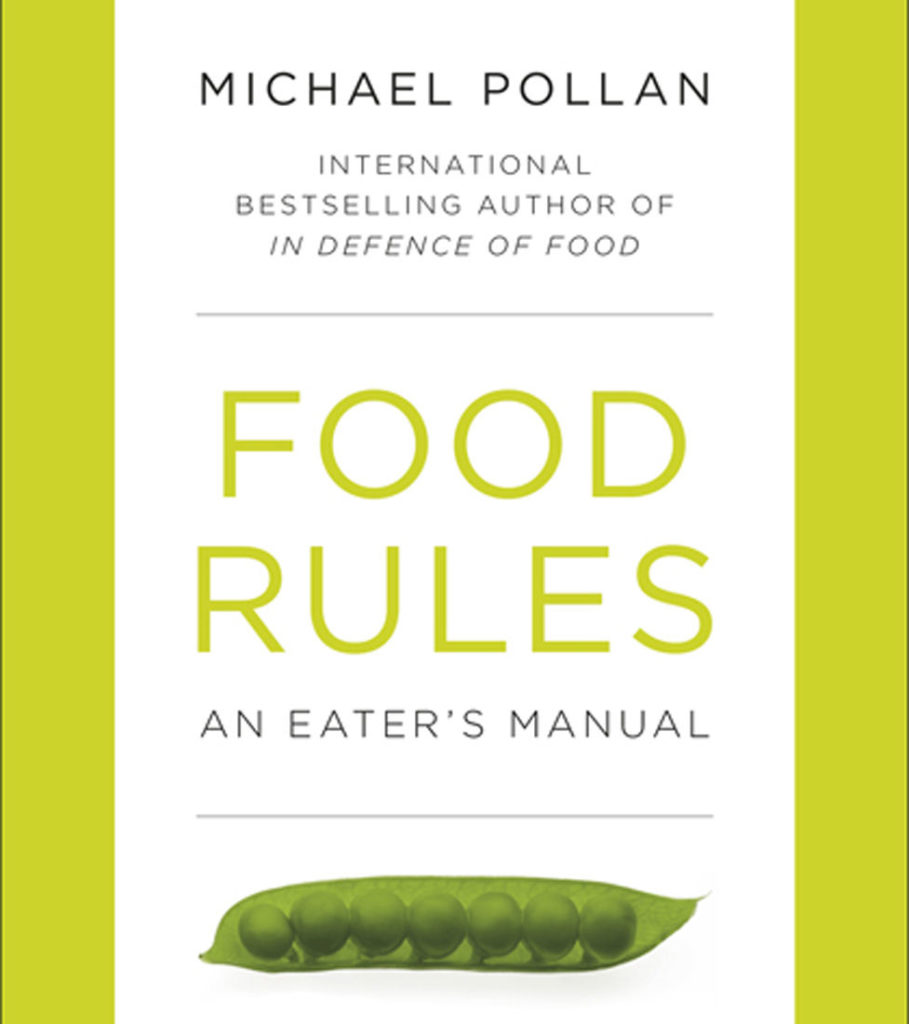
Letter to a Young Poet – Rainer Maria Rilke
These letters are more than 100 years old, and yet some passages are so relevant! They contain many life lessons from Rainer Maria Rilke (1875-1926) in response to a student at a military academy.
The poet himself later stated that his letters contained some of his creative genius.
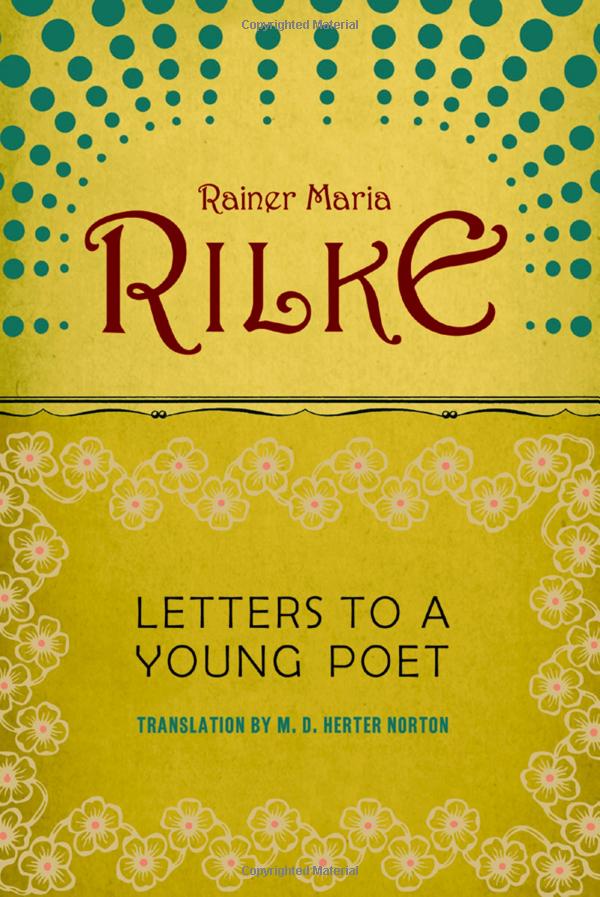
Loin de moi. Étude sur l’identité – Clément Rosset
I couldn’t remember how that book got on my reading list. I couldn’t remember who recommended it. Clément Rosset proposes a very (too?) philosophical essay, based on “name-dropping”, intended for lovers of philosophical digression and paradox…
I nevertheless had a few moments of pleasure with some very nice quotes!
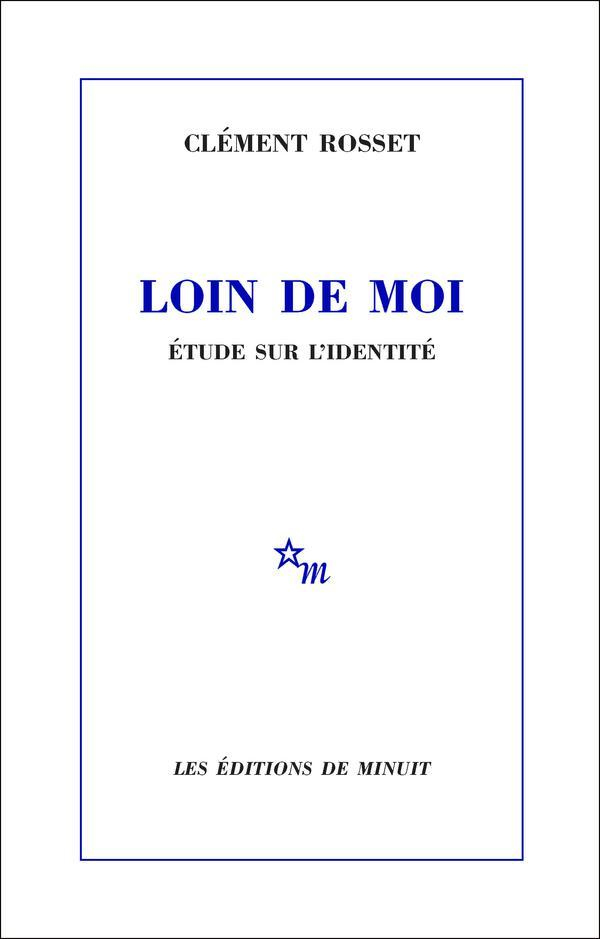
The Alchemist – Paulo Coelho
I loved that novel! It’s about time it was on my book list at 35. It tells the story of Santiago, a young Andalusian shepherd who travels to the Pyramids of Egypt via Tangier in Morocco and the Sahara desert. This journey will be the revelation of his “personal legend”.
Paulo Coelho delivers a wonderful philosophical tale that awakens the child within us. There are many allusions to Vipassana learning as “nothing is permanent”. This book also echoes in many points my Timeleft project, it was very enjoyable!
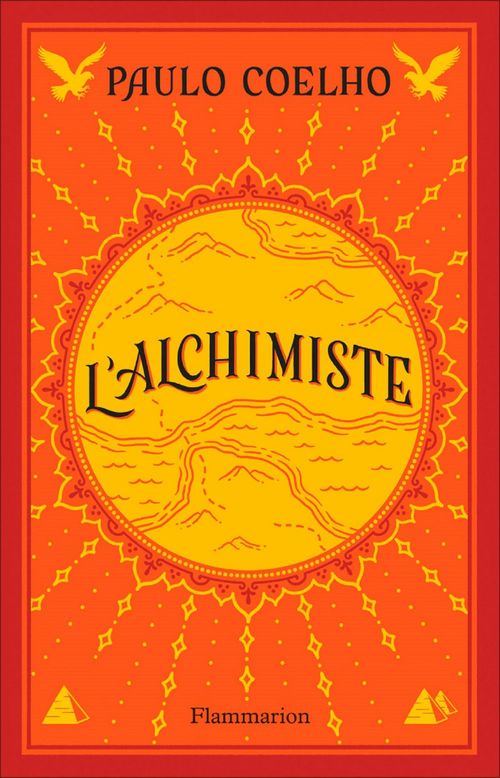
A New Earth: Create a Better Life – Eckhart Tolle
I had loved “The Power of the Now”, read just before entering my vipassana retreat. In this new book, Eckhart Tolle takes an honest look at the current state of humanity. He implores us to recognize and accept that this state, based on a misidentification with the ego and the mind, borders on dangerous madness.
There are many interesting passages, some of which need to be reread several times. Nevertheless, there are many great similarities with his first successful book.
If you have not yet read “The Power of the Now”, I advise you to start with this one before tackling “New Earth”. It is necessary (in my opinion) to have understood the first one in order to tackle the second one!
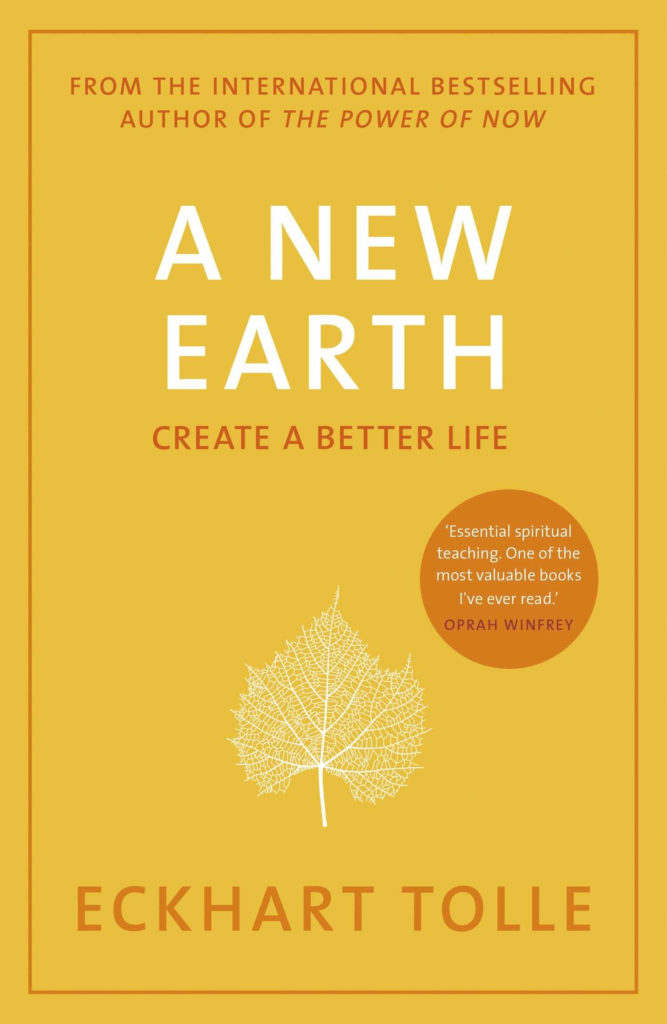
JUNE – 5 BOOKS
Normal People – Sally Rooney
This book tells the love story of Connell and Marianne, two young people who grow up in the same small town. It shows how one person can change another person’s life. The story shows us how difficult it is to talk about our feelings and also talks about domination, legitimacy and privilege.
A simple book that can be read in one go!
That afternoon he went to her house after school. All the way over in the car he kept the radio on very loud so he didn’t have to think about what he was doing. When they went upstairs he didn’t say anything, he let her talk. That’s so good, she kept saying. That feels so good. Her body was all soft and white like flour dough. He seemed to fit perfectly inside her. Physically it just felt right, and he understood why people did insane things for sexual reasons then. In fact he understood a lot of things about the adult world that had previously seemed mysterious. But why Marianne? It wasn’t like she was so attractive. Some people thought she was the ugliest girl in school. What kind of person would want to do this with her? And yet he was there, whatever kind of person he was, doing it. She asked him if it felt good and he pretended he didn’t hear her. She was on her hands and knees so he couldn’t see her facial expression or read into it what she was thinking. After a few seconds she said in a much smaller voice: Am I doing something wrong? He closed his eyes. No, he said. I like it.
Sally Rooney
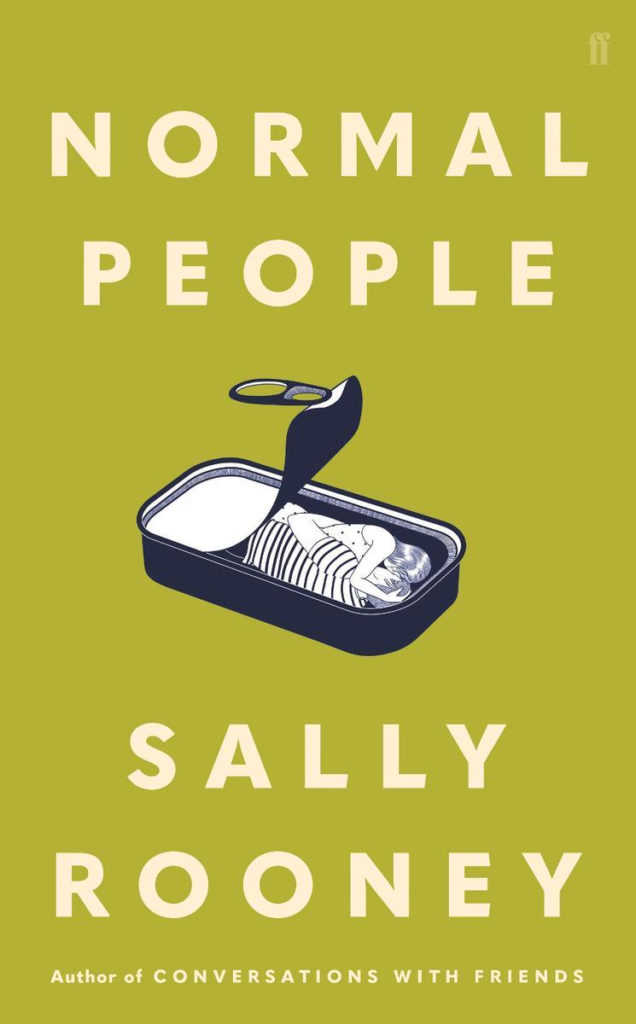
The Passion Economy: Nine Rules for Thriving in the Twenty-First Century – Adam Davidson
I came across the article “A primer on the Passion Economy” and discovered the term “passion economy” at the same time. It describes this new era in which we are entering with both feet. A time when we can now all “live from your passion”, whatever the passion. You can earn a living by writing newsletters on substack or telling your life story in podcasts on Anchor.
As a result, I went back to the origin of the term and discovered Adam Davidson’s book. In it he describes this new movement, with stories of “successful enthusiasts”.
If you want to get started or want to understand how you can make a living doing what you love, this book is for you.
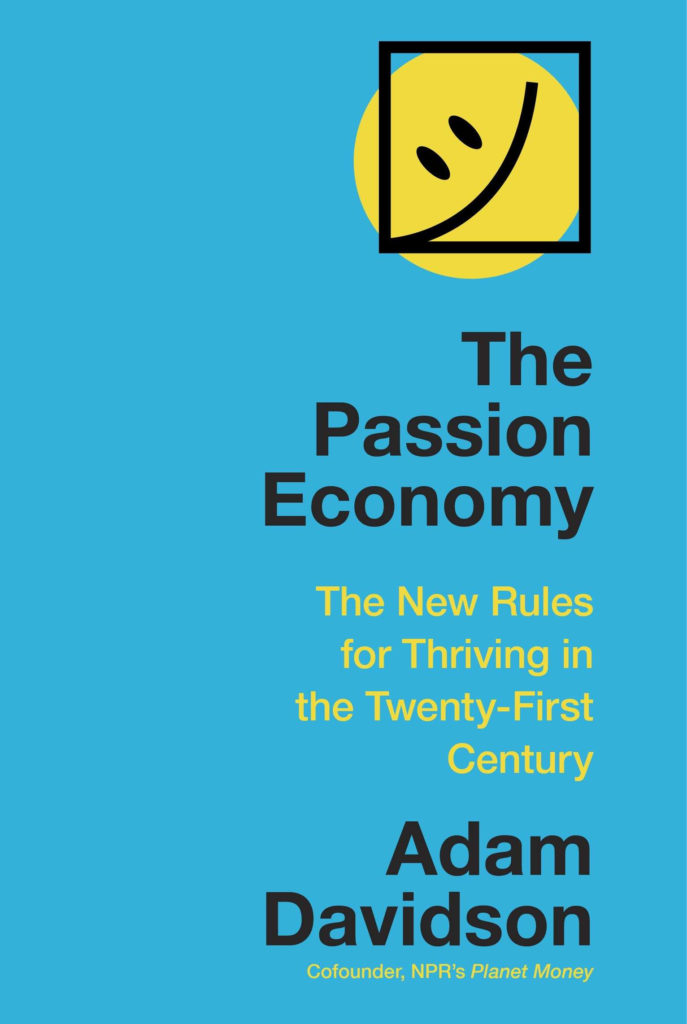
Kétamine – Zoé Sagan
It’s a special book about the history of a very “pissed off” artificial intelligence. The beginning is nice, but the further you go in the book, the more you drop out… You know, you get a little overwhelmed at the end…
You think you know what goes on in a man’s mind? You’re dead wrong. Here are the six things I think are essential to keeping a man:
1. Don’t play games with him.
2. Never reveal your feelings to him too soon.
3. Never go to bed on the first night.
4. Never listen to your friends’ advice.
5. Don’t expect a romantic relationship to fill your shadows and gaps.
6. Don’t try to change it. You change yourself before you change the other.You must remember ONE idea: a man loves a woman not for what she does but for what she is. So stop trying to know how to make food, give up cleaning and bikini waxing, massages and facials. And then you’ll see if he really cares about you. Whatever your talents and skills, don’t try to fill him with wonder. He’ll let you down. Look unapproachable while being attentive. Away yet fun. Have character without being sectarian. Then you can aspire to loyalty.
Zoé Sagan
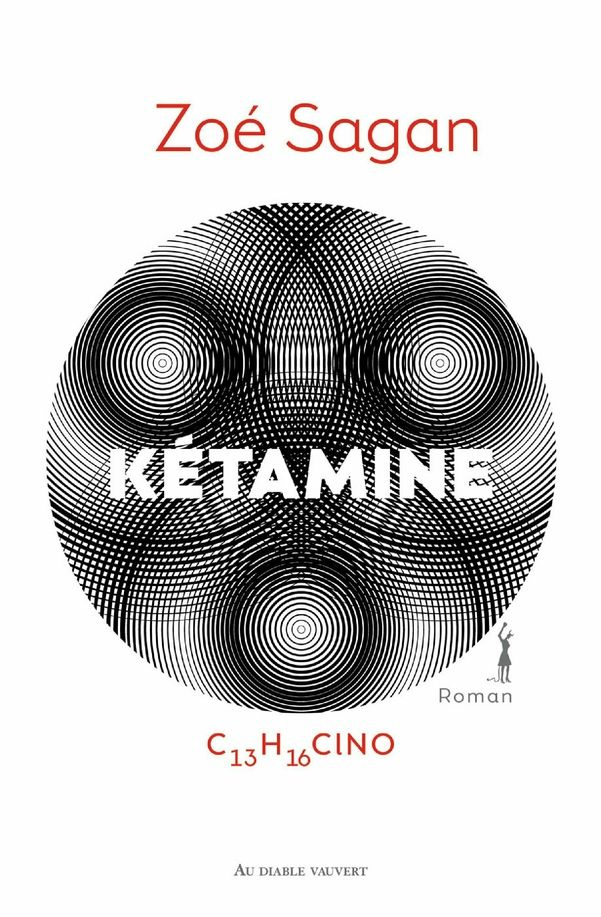
The Happiness Advantage: The Seven Principles of Positive Psychology that Fuel Success and Performance at Work – Shawn Anchor
The Happiness Advantage reminds us that there are always two ways of looking at things that happen to us. It’s up to us to develop relatively positive thoughts about events and to build on those thoughts to bring about positive consequences, or to insist on negative thoughts that will lead to negative events.
By isolating seven practical and applicable principles, Shawn Anchor shows how we can capitalize on the advantage of happiness to improve our performance and maximize our potential.
Among the principles he outlines are:
- The Tetris Effect: how to retrain our brains to spot patterns of possibility, so we can see—and seize—opportunities wherever we look.
- The Zorro Circle: how to channel our efforts on small, manageable goals, to gain the leverage to gradually conquer bigger and bigger ones.
- Social Investment: how to reap the dividends of investing in one of the greatest predictors of success and happiness—our social support network
If success causes happiness, then every employee who gets a promotion, every student who receives an acceptance letter, everyone who has ever accomplished a goal of any kind should be happy. But with each victory, our goalposts of success keep getting pushed further and further out, so that happiness gets pushed over the horizon. Even more important, the formula is broken because it is backward. More than a decade of groundbreaking research in the fields of positive psychology and neuroscience has proven in no uncertain terms that the relationship between success and happiness works the other way around. Thanks to this cutting-edge science, we now know that happiness is the precursor to success, not merely the result. And that happiness and optimism actually fuel performance and achievement—giving us the competitive edge that I call the Happiness Advantage.
Shawn Anchor
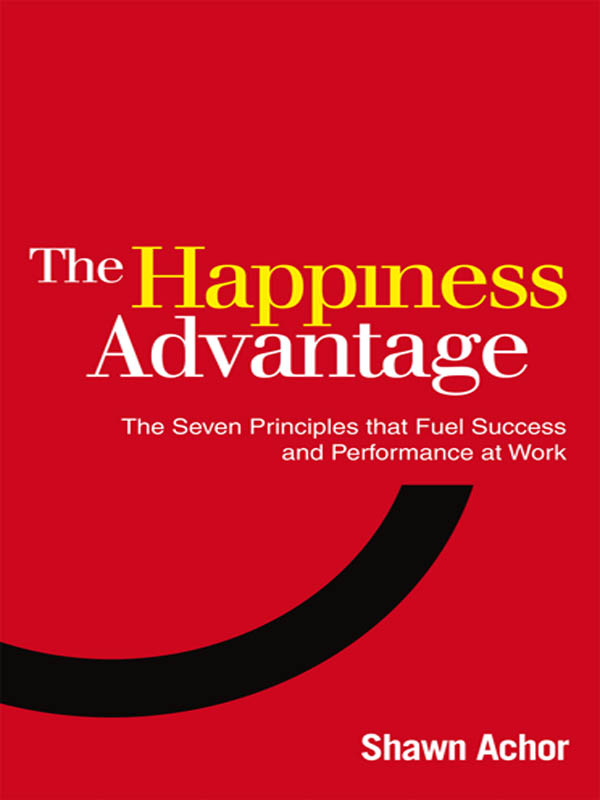
The 5 AM Club: Own Your Morning. Elevate Your Life – Robin Sharma
Robin Sharma is an expert in leadership and performance. He is best known for his book “the monk who sold his Ferrari” (which I highly recommend).
Robin Sharma offers us a simple solution to improve our lives: wake up at 5 o’clock in the morning. Through a story between 3 characters, Robin explains his method to get up early. The idea is not simply to get up before the sun, but to have a whole method to make his precious hours as efficient as possible.
I won’t detail the whole method, but the most important part is: the 20/20/20 formula. Every morning, Robin suggests you to work during the first hour after waking up.
- 20 minutes on your physique (exercise)
- 20 minutes on your spirituality (meditation)
- 20 minutes to grow (listen to an audiobook, read, learn …)
In a culture of cyber-zombies, addicted to distraction and afflicted with interruption, the wisest way to guarantee that you consistently produce mastery-level results in the most important areas of your professional and personal life is to install a world-class morning routine. Winning starts at your beginning. And your first hours are when heroes are made. Wage a war against weakness and launch a campaign against fearfulness. You truly can get up early. And doing so is a necessity in your awesome pursuit toward legendary. Take excellent care of the front end of your day, and the rest of your day will pretty much take care of itself. Own your morning. Elevate your life.
Robin Sharma
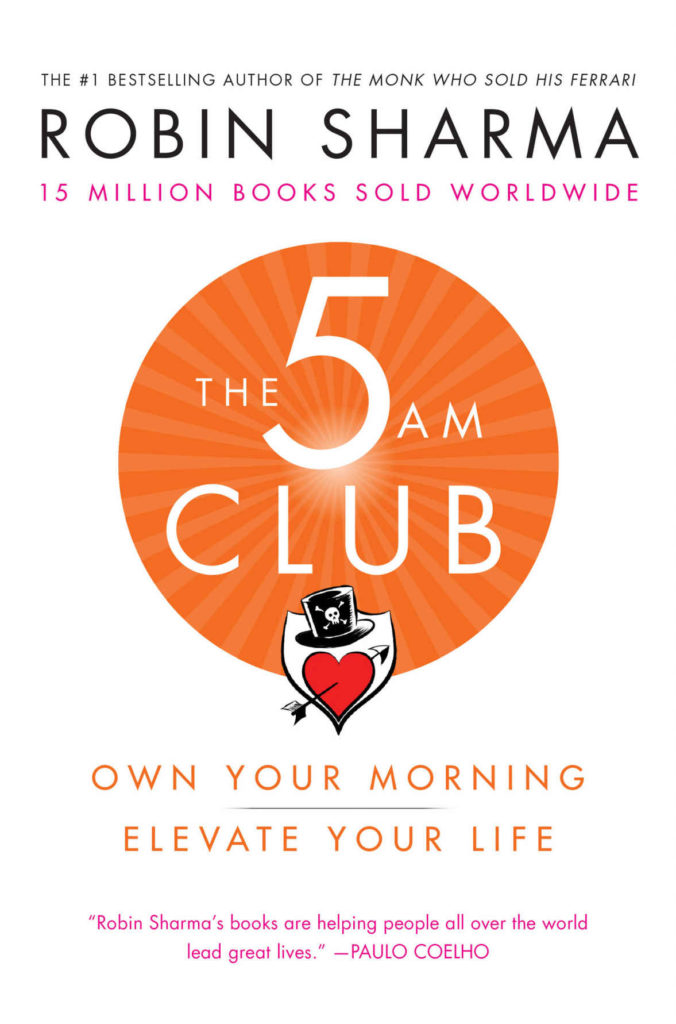
MAY – 5 BOOKS
The Plant Paradox: The Hidden Dangers in « Healthy » Foods That Cause Disease and Weight Gain by Steven R. Gundry
Very confusing book. In the end, you don’t know what you should or shouldn’t eat. That’s the whole problem with the subject of nutrition, you hear everything and its opposite. Steven R. Gundry comes up with a new theory that is (according to him) the cause of most of our diseases and weight gain.
The big fashion is “gluten intolerance”. But what if we have missed the root of the problem? In The Plant Paradox, Steven Gundry reveals that gluten is just one variety of a common, and highly toxic, plant-based protein called lectin.
Lectins are found not only in grains like wheat but also in the “gluten-free” foods most of us commonly regard as healthy, including many fruits, vegetables, nuts, beans, and conventional dairy products. These proteins, which are found in the seeds, grains, skins, rinds, and leaves of plants, are designed by nature to protect them from predators (including humans). Once ingested, they incite a kind of chemical warfare in our bodies, causing inflammatory reactions that can lead to weight gain and serious health conditions.
Once all this is said, you have a list of what you can and cannot eat. Hang on to it if you want to follow it to the letter…
You Are What They Ate
Steven R. Gundry
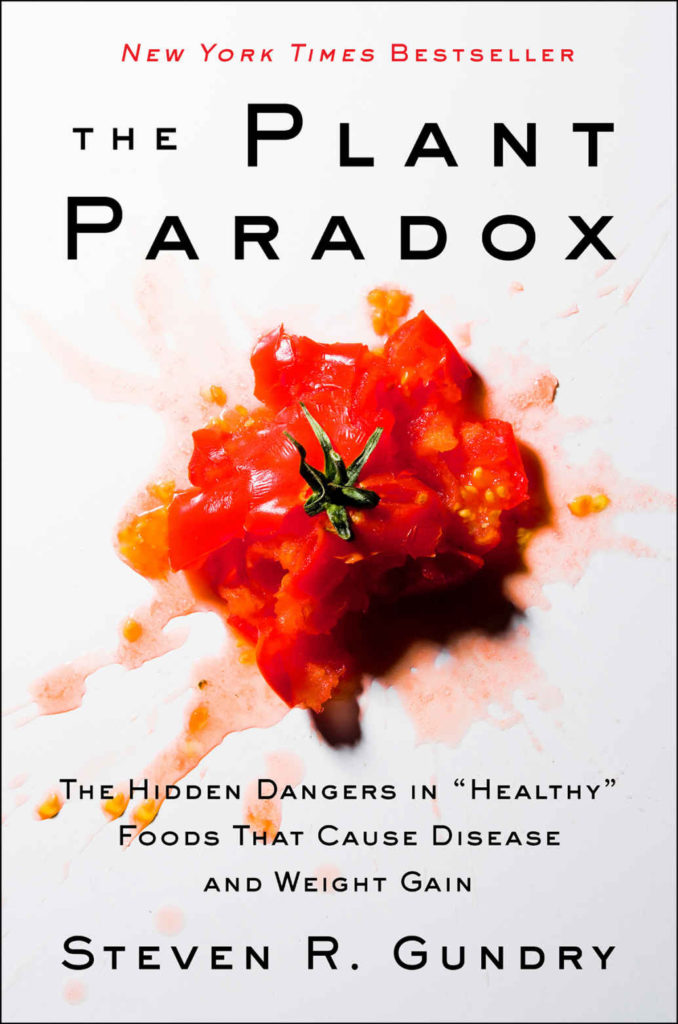
Can’t Hurt Me : Master Your Mind and Defy the Odds by David Goggins
A big apriori when I started this book because I knew the person through motivational videos. And frankly, I found him “too much”! Yes, even for me, so that’s to tell you…
What a nice surprise! This book is a huge slap in the face for you. David Goggins is an alien straight from another planet to explain to us about self-discipline, mental toughness and hard work.
David Goggins has run some amazing races, including the Badwater Ultramarathon, described by its organizers as “the hardest run in the world” because of the heat on the race course. To give you an idea: 135 miles (217 km) and 4,000 m of cumulative positive height difference, in the middle of July, when the weather conditions are at their most extreme, with temperatures frequently exceeding 50 °C in the shade and 75 °C on the ground .
That’s not all! He also holds the world record for the number of pull-ups in 24 hours with 4030 repetitions! An alien !
Don’t stop when you are tired. Stop when you are done.
David Goggins
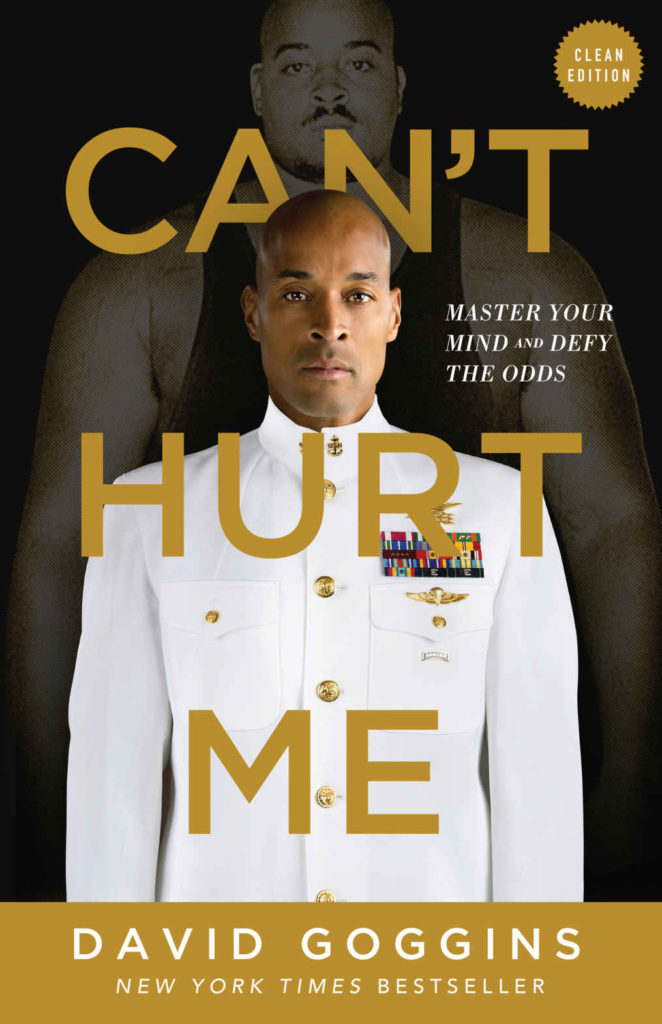
Essentialism: The Disciplined Pursuit of Less by Greg Mckeown
I loved this book and rarely have I underlined so many passages/quotes. Greg Mckeown explains that the way to essentialism is not to do more in less time but to do less to do better (and more). The concept is not like a time management strategy or a productivity technique. It is a systematic discipline to discern what is absolutely essential to eliminate everything that is not.
If you don’t prioritise your life, someone else will.
Greg Mckeown
I recommend this reading to all those who feel they do not have enough time in a day, to all those who think that multi-tasking is synonymous with productivity.
“If you could do only one thing with your life right now, what would you do?”
Greg Mckeown
You’ll also learn how:
– Identify the activities that are truly essential and eliminate the others.
– Saying “no” with elegance
– Effortlessly carry out the activities you have decided to focus on
– Live your life to the fullest, freeing you from side commitments to devote yourself to what really matters.
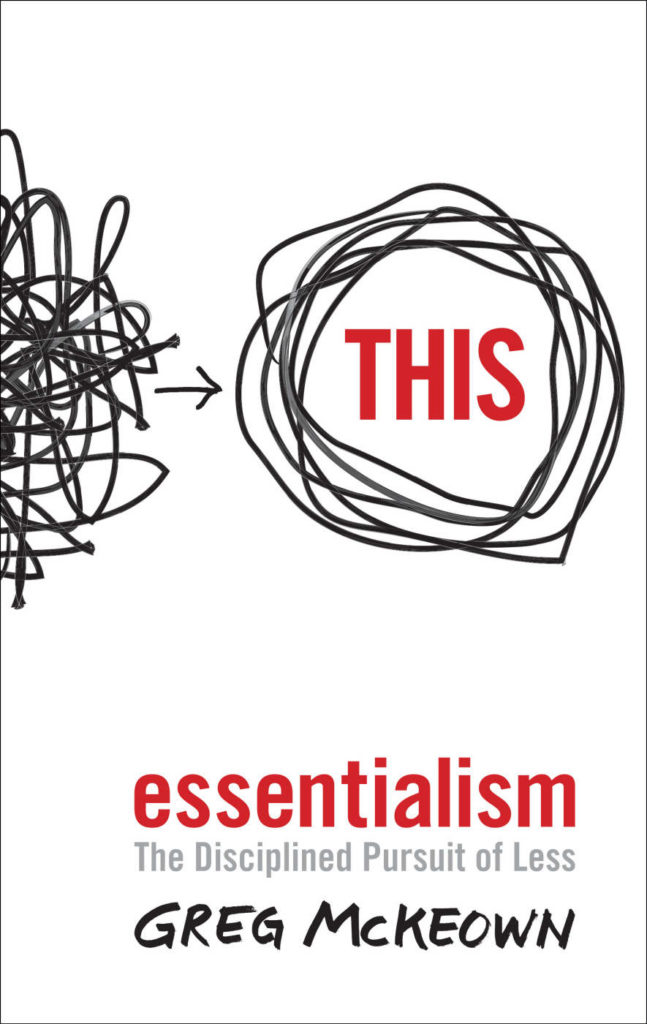
You Are a Badass: How to Stop Doubting Your Greatness and Start Living an Awesome Life by Jen Sincero
I loved Michael Pollan’s Caffeine: How Caffeine Created the Modern World last month, so I’m continuing my Audible subscription with a new audio book. On the program: the electrifying voice of Jen Sincero whose only goal is to make you realize you’re a Bad Ass!
You Are a Badass talks about a variety of topics such as “identifying self-destructive behaviour”, “overcoming fears so you can take risks” or “learning to love yourself and others”.
Yes, quite a program!
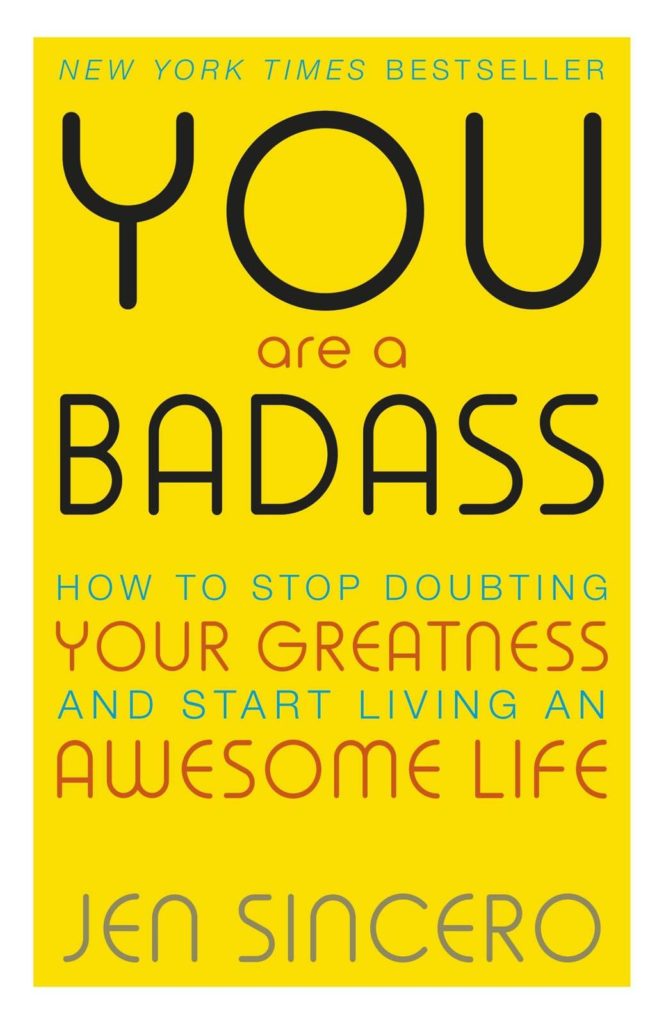
Learning to Scale: The Secret to Growing a Fast and Resilient Company by Regis Medi
Lean Management is the best thing that happened to me in my entrepreneurial career. For 3 years, I devoured everything I could to understand and learn this mindset straight from the Toyota factories. Lean Management has completely changed my vision of entrepreneurship, transformed the way I manage my teams and above all created growth for my company in a difficult context.
I owe this apprenticeship to my Sensei Regis Medina who taught me everything and put me on the right track. “Learning to Scale” is his latest book. My only regret: not having discovered Lean 10 years earlier! If you are at the head of your company, whether you are just starting or just finishing, take a few hours to read this book.
Surely the best gift you can give to your company.
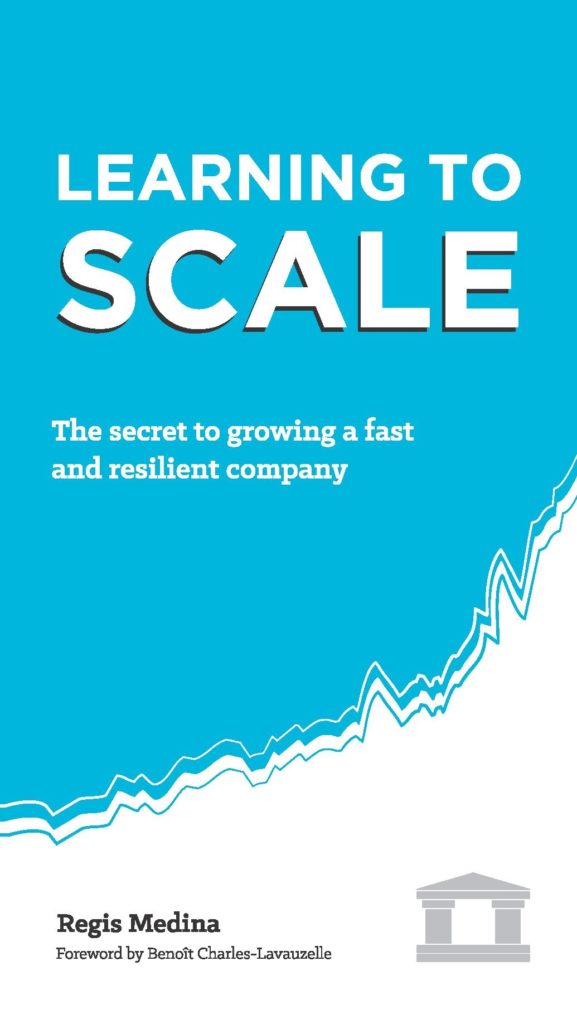
APRIL – 6 BOOKS
One of my biggest crushes! I had loved the netflix documentary “Wild Wild Country” which tells the story of the highly controversial Indian guru Bhagwan Shree Rajneesh, known as Osho, and the Rajneeshpuram community of his followers in Oregon. I was captivated by the documentary, by the hallucinatory side of the story, but also by Osho’s teachings. I wasn’t disappointed in digging into the subject…
Sex has to be a meditation and you have to learn the art of it. Sing, dance, celebrate. Sex should not be a hasty affair, it should not be a hit-and-run affair. Savor it. It should be a great ritual. That’s how Tantra rituals arose. Prepare for it. Become more sensitive, open, silent. When you are going into lovemaking you are entering into the temple. Enter only when you are prayerful, otherwise not. Don’t enter with lust, enter with prayer—then you will be able to know the secret of sex. Don’t enter to exploit the other, enter to share with the other. Don’t enter as if sex is just a kind of relief—that is the lowest form of sex. The highest form is not relief but ecstasy. Relief is negative.
No, love is such a beautiful phenomenon that you should learn the art of love, just as you should learn the art of life. If you can afford it, your room for love should be separate, because it is a temple. And when you enter the room of love, you should leave your shoes out, and your heads too; just put them in the shoes. And before you make love, have a good shower, be clean. Meditate for a few minutes. Make it a beautiful experience.
Osho
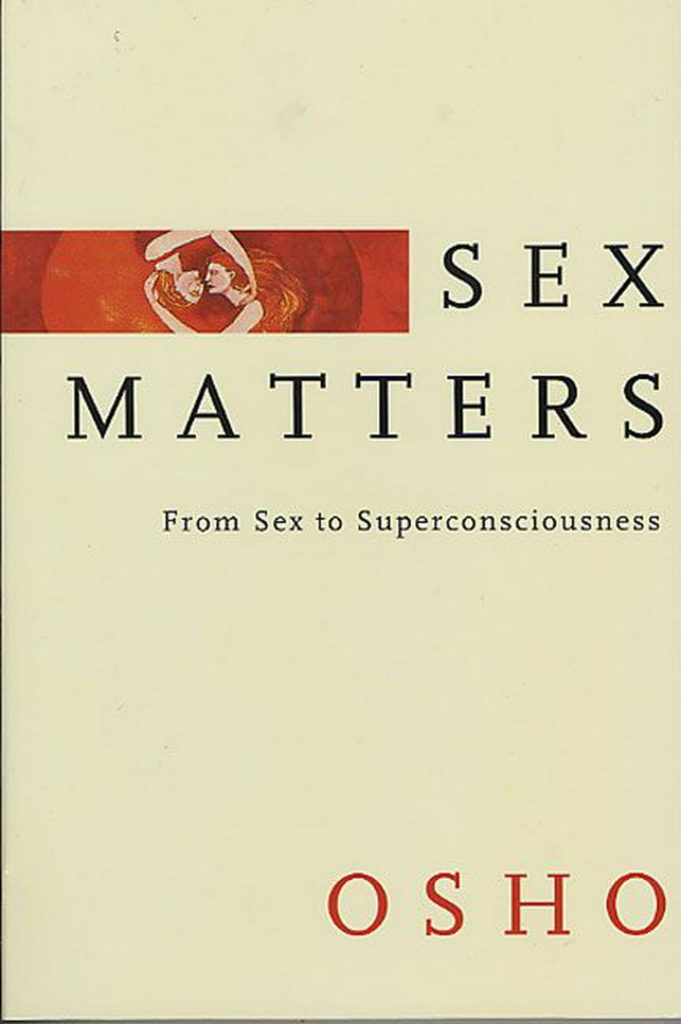
Le pouvoir de l’agenda (ou comment rompre la malédiction canapé – chips – télévision) by Loukas Montclar
At the end of my reading of “Company of one”, Kindle suggested this book to me, “based on your reading”. I liked the description, so I thought “why not”. The book is quite hollow and reads very quickly. I liked the quotes at the beginning of each paragraph and the author’s “spoken” style.
Nothing new for someone who has mastered the basics of personal development. But a good first book for someone just starting out.
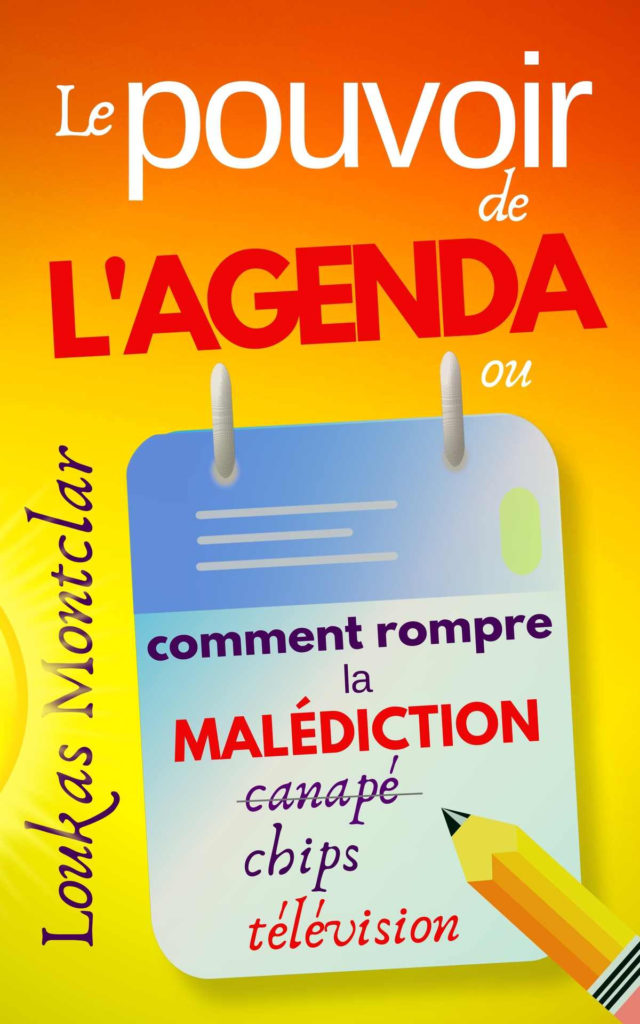
Company of One: Why Staying Small Is the Next Big Thing for Business by Paul Jarvis
Book recommended by my friend Ulysse (who read 100 self-help books in 2 weeks). It reveals a particularly interesting mindset, as opposed to the one I’ve known for 10 years at MinuteBuzz.
The idea is to create a company “of one” thanks to technological evolutions and to make its “job” wrap around your life (and not the other way around). However, Paul Jarvis explains that this is not the classic “Freelance” or “Digital Nomad” but a real company.
A must read book if you want to quit your job and conquer your dreams!
In contrast, a company of one is more in line with the traditional definition of an entrepreneur. If you’re utilizing systems, automations, and processes to build a long-term business, you’re not trading time for money, but instead operating and profiting outside of the time you spend working and beyond your one-to-one relationships. For example, whether you’re creating physical products, selling software, or teaching online courses, customers and users can purchase and consume these products and services without your company of one putting in time for each transaction. While developing products can be time-consuming and iterative, the number of customers can be almost infinite for a company of one, and profit then happens outside of time spent.
Paul Jarvis

Caffeine: How Caffeine Created the Modern World by Michael Pollan
Second attempt to “read” a book thanks to Audible. I had tested the format when Audible was released a few years ago, but without really getting hooked. I find it takes a long time to listen to a book.
Except that coupled with a good 90/100min run, it’s just ideal to consume 2 more books per month easily.
The story of the conquest of caffeine on our species is fascinating. Yes, we have been colonized by caffeine. All you have to do is go out on the street to realize that everyone is walking around with a coffee, tea or soda in their hand. We learn how caffeine blocks the information to our brain that we are tired, creating the ideal vicious circle: the more tired I am, the more coffee I drink, the more coffee I drink, the more tired I am…
Ps: being currently in a caffeine free 30 days, I can assure you that the first 5 days are horrible, but afterwards your energy is tenfold! Not to mention the return of peaceful nights with many dreams.
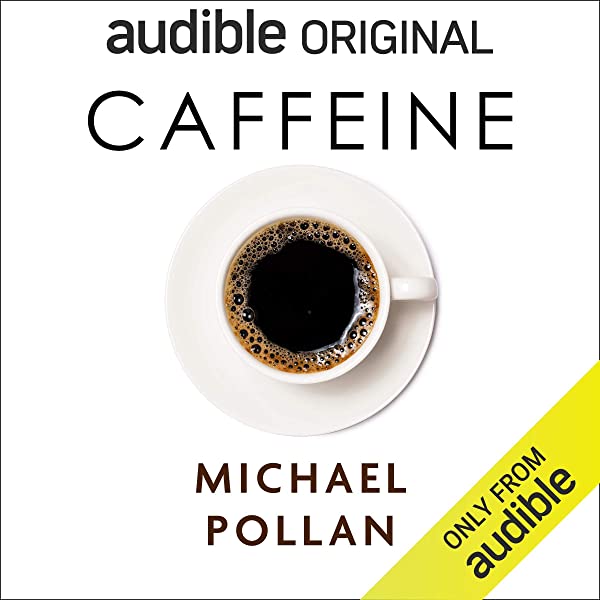
La sagesse du moine qui vendit sa Ferrari : Les huit rituels des leaders visionnaires by Robin Shilp Sharma
I hesitated to read it for a long time, probably because of the frankly unselling title. But every month, a new person said to me, “this book is for you, you absolutely must read it! ». I finally cracked…
It reads fast and the story is sympathetic. I have highlighted many passages, most of which are already known, but are good to reread. A good book to put on your book-list!
People spend their whole lives dreaming of becoming happier, living with more vitality and having an abundance of passion. Yet they do not see the importance of taking even ten minutes a month to write out their goals and to think deeply about the meaning of their lives, their Dharma. Goal-setting will make your life magnificent. Your world will become richer, more delightful and more magical.
Robin Shilp Sharma
“John, on your deathbed you will never wish you spent more time at the office.”
Robin Shilp Sharma
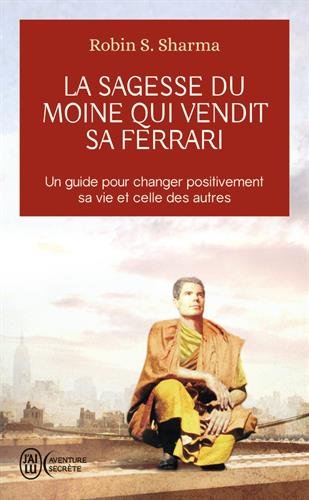
The Right It: Why So Many Ideas Fail and How to Make Sure Yours Succeed by Alberto Savoia
When you’re an eternal optimist, you feel like life sends you gifts every day. When I got back from New Zealand, I started thinking seriously about TimeLeft, my new project. I wasn’t sure where to start, and without realizing it, I almost made the classic beginner’s mistake: starting with a long and expensive development with too many features.
During a cool video call with my friend Armand, we were talking about other things, when he tells me about his last reading “The Right It” and why most startups fail. He started to describe to me exactly the path I was taking…
Alberto Savoia explains how to review his priorities and launch a “preotype”. This is the prototype of your prototype. How can you launch your idea tomorrow with less than 100 dollars? Can you launch an iphone application tomorrow? No, then a website? No, then a landing page? Yes? Ok just do it !
And that’s what we did on TimeLeft with 140 euros and 2 hours of time on Instapage. Result: 500 registered users and 2500 dreams received without having developed anything! A good boost to tell you that you have a good idea and start investing more seriously time and money.
When it comes to bringing new product ideas to market, failure is always an option. In fact, it is—by far—the most likely outcome anytime anyone tries to do something new or different. This is true in art, in science, in relationships—everywhere. And it’s most definitely true in the world of business. Most new businesses fail, and most new products launched by existing businesses fail.
Alberto Savoia
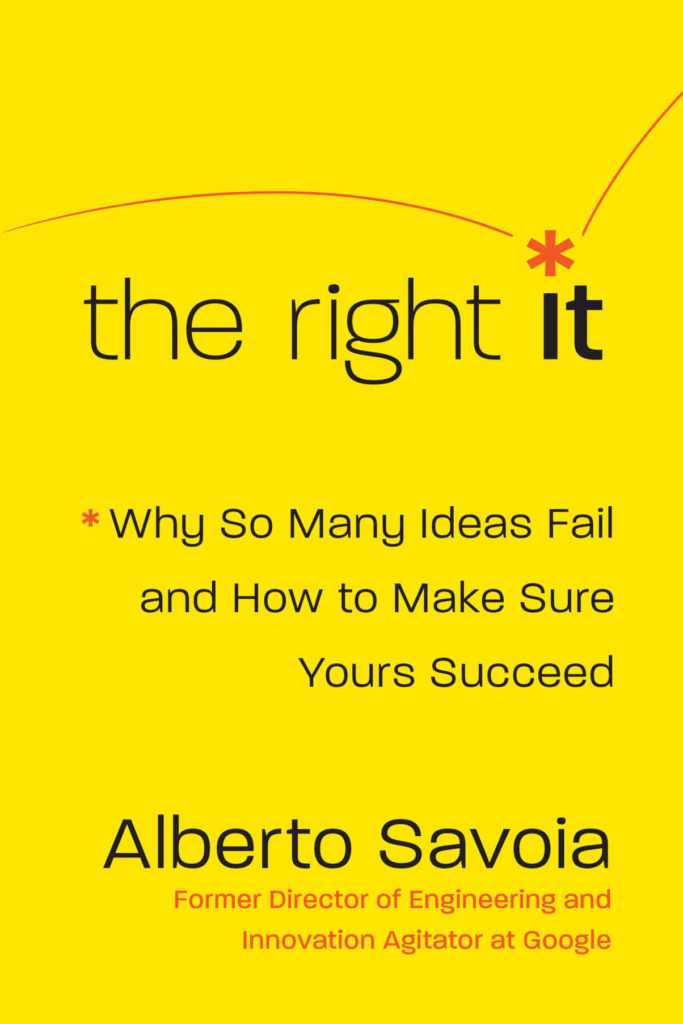
MARCH – 4 BOOKS
Bigger Leaner Stronger The Simple Science of Building the Ultimate Male Body by Michael Matthews
I came across this book while browsing through the list of books by James Clear, one of my favorite authors, who recommends him on his blog. The title is very “American” and can be scary, I admit. But I was taught not to judge a book by cover!
Michael Matthews is a sports coach who decided to understand how the human body works by not just stopping at his fitness skills. He studied the subject from top to bottom, from the scientific aspect to nutrition, passing all known and recognized techniques.
Eat more energy than you burn for long enough, and you’ll gain weight. Eat less, and you’ll lose weight. Period.
Michael Matthews
I like his very “cash” and pragmatic approach to things. However, you have to be really hooked to understand everything. Some chapters are very (very) technical. There is still a good book to remember the essential basics to know!
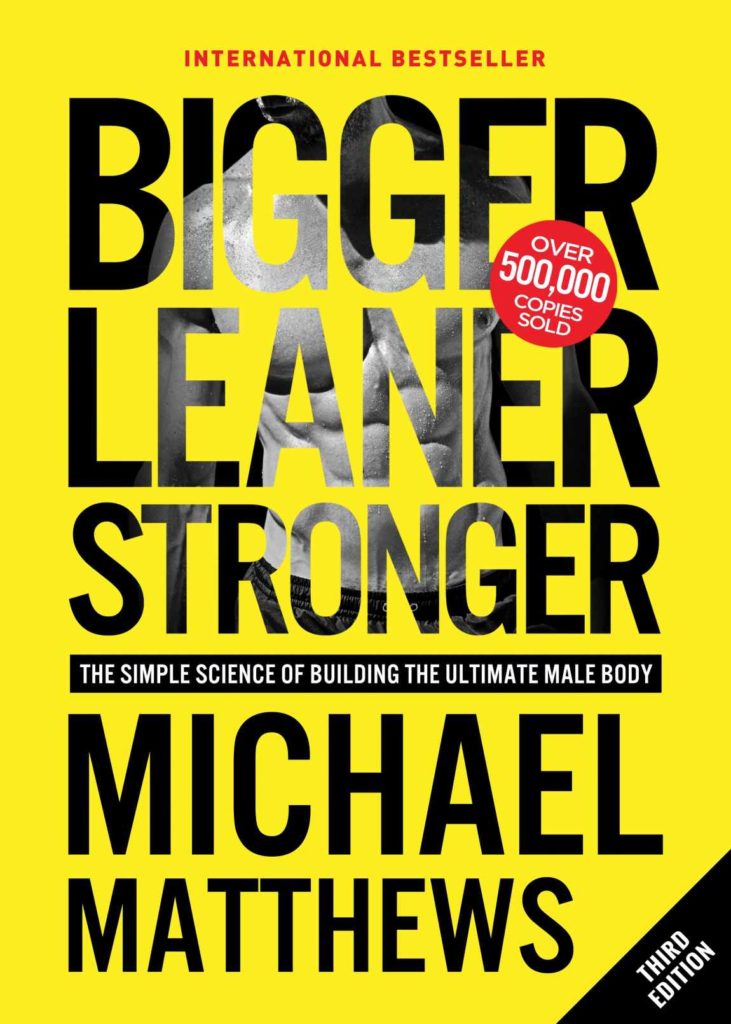
Finding Ultra: Rejecting Middle Age, Becoming One of the World’s Fittest Men, and Discovering Myself by Rich Roll
I loved this book! Being a big fan of the guy, I must admit that I am a little biased in my judgment. We discover the incredible story of this American, a former depressed alcoholic, who becomes an ultra-trail champion.
Rich Roll has some extraordinary exploits like EPIC5: 5 ironmans on the 5 islands of Hawaii in 1 week. Just crazy …
Rich Roll is also a great ambassador for veganism. Throughout the book, he associates his transformation with this new style of nutrition.
The general idea is this: eat vegetables. Lots of different varieties. Vegetables, fruits, cereals, seeds and legumes. To every meal. All the time. All colors, all sizes and simply prepared, to stay close to their natural state. Cultivate diversity. Avoid industrial and refined foods. Do not eat anything that contains ingredients that you cannot pronounce by name or that do not exist in nature. If possible, try to consume organic and local products. Go easy on the sugar. For oils – one of the few “technologically” produced foods I recommend – consume it in small amounts.
Rich Roll
I gave this book to my father and I recommended it to all my close friends because I find it really inspiring. The idea is not to hope to reach his level of performance, but it opens your eyes to the field of possibilities. I have become triathlete and vegetarian for almost 1 year now. The changes are visible aesthetically but also inside (on my sleep, my energy and my intestines).
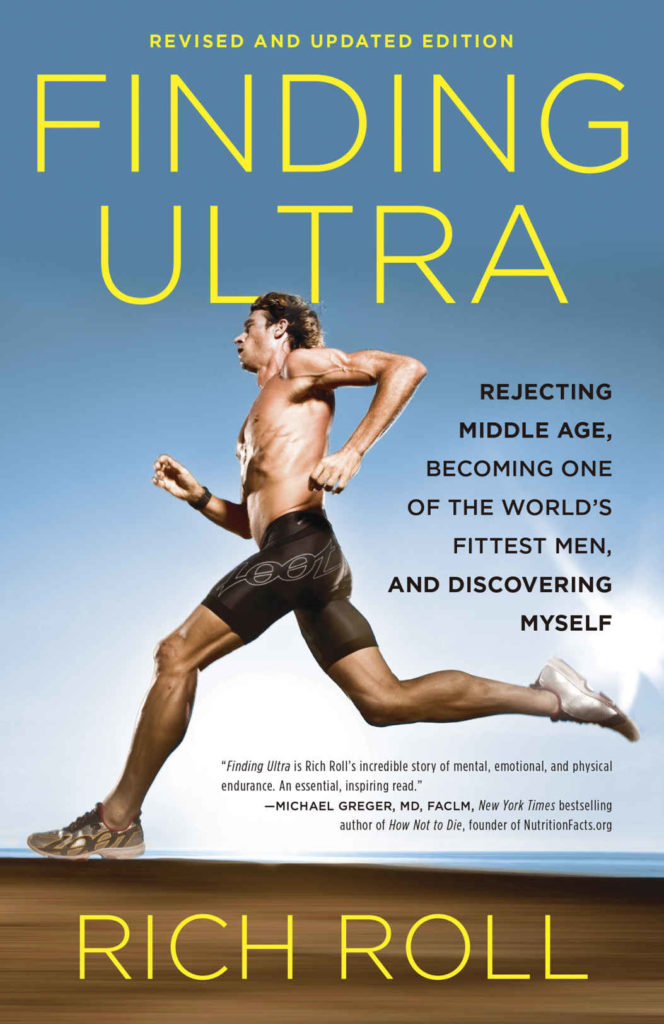
Think, Fast and Slow by Daniel Kahnelan
Attention very very dense book to read! Daniel Kahneman is clearly a genius of his kind. I understand why it has so many good ratings on amazon: 4.5 / 5 with +6800 comments.
Daniel explains that we have “two characters” in our brain: system 1 (think fast – automatic) and system 2 (think slow – conscious).
To put it simply, our system 1 is automatic and impulsive. It is the vestige of our past and essential to our survival. He’s the one who helps us drive our car without realizing it. Our system 2 is very aware and considerate. It helps us to deliberately focus our attention. For example: if I tell you 2 + 2, it is your system 1 that responds directly without any energy expenditure. If I tell you 47 * 158, he will have to pass the ball to system 2 because he is unable to answer it.
Each chapter is interesting with many sociological or psychological experiences that make you think. I have rarely underlined so many paragraphs in a book! We also learn a lot about how our brain works, or even about our own behaviors. A must-read book !
You cannot help dealing with the limited information you have as if it were all there is to know. You build the best possible story from the information available to you, and if it is a good story, you believe it. Paradoxically, it is easier to construct a coherent story when you know little, when there are fewer pieces to fit into the puzzle. Our comforting conviction that the world makes sense rests on a secure foundation: our almost unlimited ability to ignore our ignorance.
Daniel Kahneman
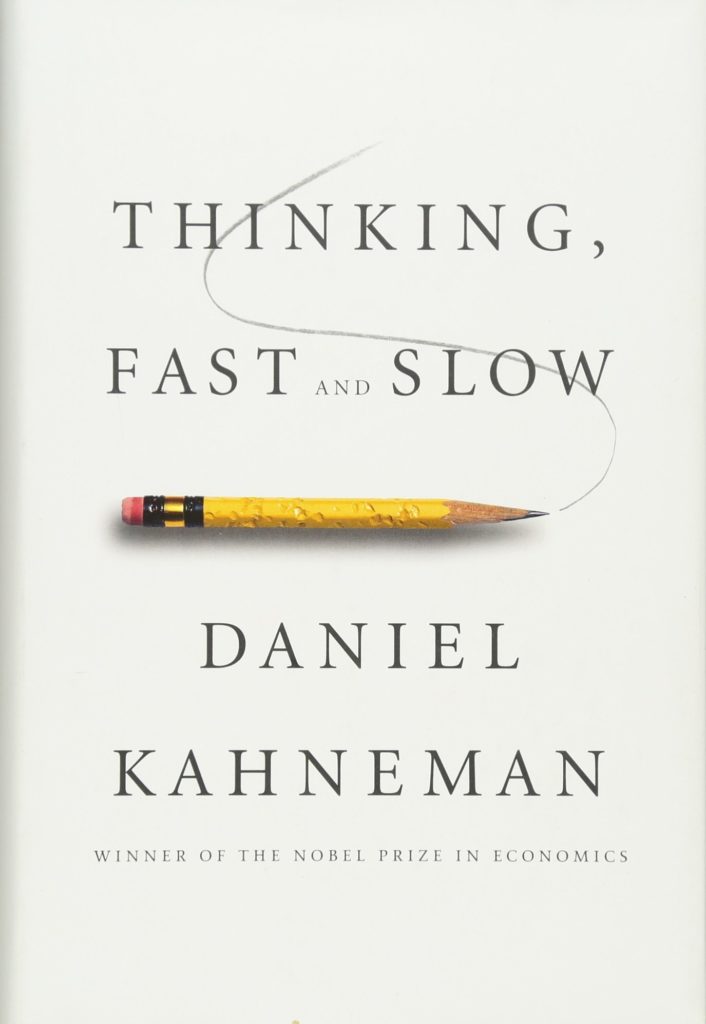
FEBRUARY – 4 BOOKS
The Power of Now: A Guide to Spiritual Enlightenment by Eckhart Tolle
The power of this book is just insane. At least when you’re “ready” to read it. I tried to read it in 2018 and stopped a few pages later. Every paragraphs were too dense and complicated for me, but above all, I was not ready to understand the meaning of this book. 3 years later, I tried again to read just before my vipassana experience (there are many similarities with Goenka’s teaching)
I took a huge slap in my face! As if I now have glasses to finally understand the meaning of all these words. I will not be able to summarize it in a few lines but here are my lessons (in simplified):
– Your mind constantly swings between the past and the future. But life is in the present.
– Your suffering comes from the non-acceptance of what is.
– You must accept as is it or change it. If you can’t change it, then accept it.
– Nothing is permanent.
The vipassana experience increases the power of this book, the power of Now
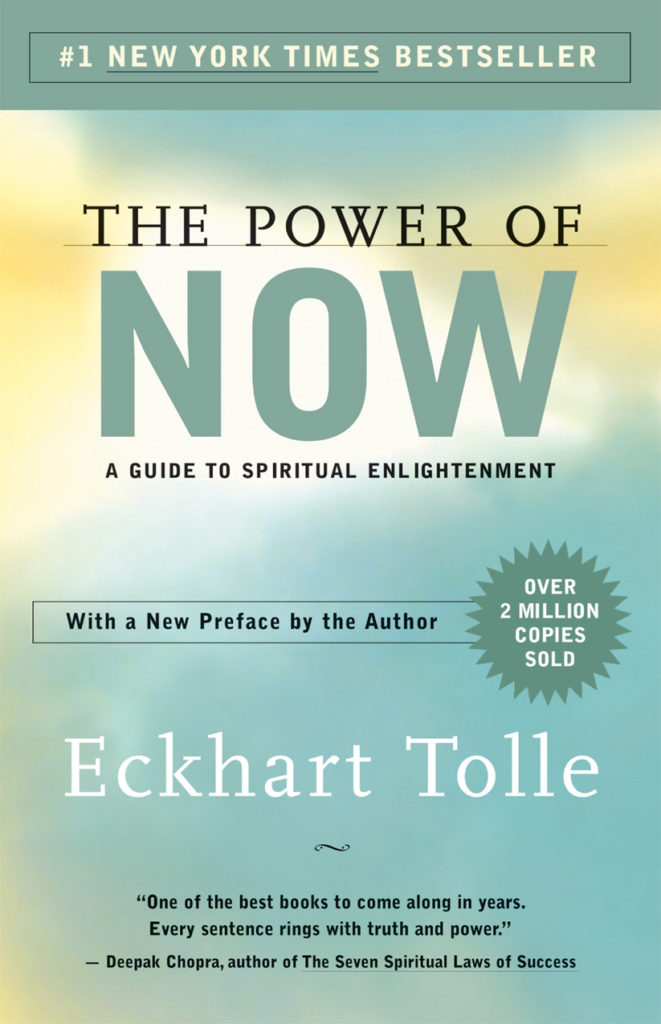
The 100 Simple Secrets of Successful People: What Scientists Have Learned and How You Can Use It by David Niven
I made the mistake of reading his other book (the secret of great relationships) in January and not this one on “successful people”. So I made up for my mistake. I shouldn’t have! He’s as bad as the other.
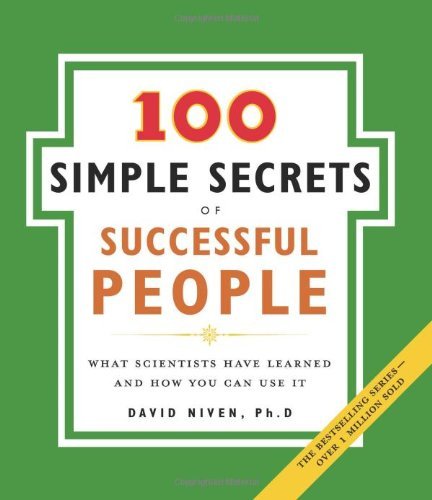
Superhuman by Habit: A Guide to Becoming the Best Possible Version of Yourself, One Tiny Habit at a Time by Tynan
As “Atomic Habits” (but easier to read), this book is a good summary of techniques and points of view to help you change your habits. The author tell his story, from “lazy looser” to “superhuman by habit”. I have highlighted many passages with quotes that deserve to end on Linkedin or Instagram. My favorite: “Missing two days of a habit is habit suicide.“
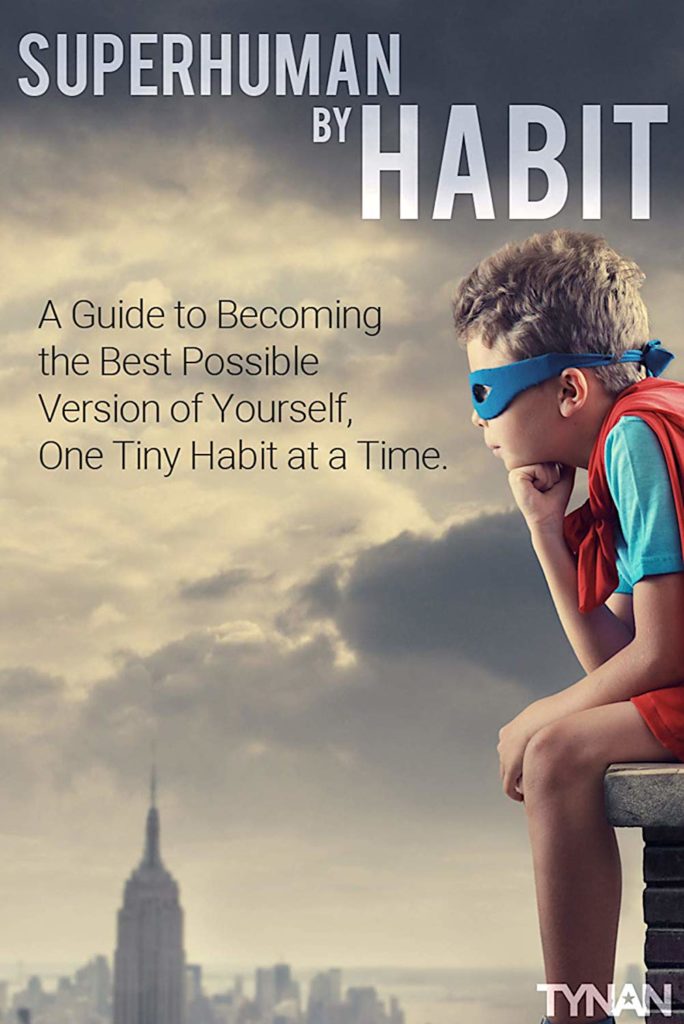
Blitzscaling: The Lightning-Fast Path to Building Massively Valuable Companies by Reid Hoffman and Chris Yeh
Often cited in entrepreneurs’ book-lists, this book is written by the founder of Linkedin and the founder of the Global Scaling Academy. It explains how the most powerful startups in the world have conquered the world with “the speed of light”.
“Blitz” refers to the German army’s lightning strike force during the Second World War and “scaling” defines the moment when a company changes scale (and enters the big league).
This book is for entrepreneurs who dream of being the next Mark Zuckerberg. It explains that in our current society, everything is going so fast, that to succeed to creating “a new unicorn”, you have to take big risks, have a lot of cash and if possible be in China or in the silicon valley. To summarize this book in 5 words: “Grow fast or die slow”
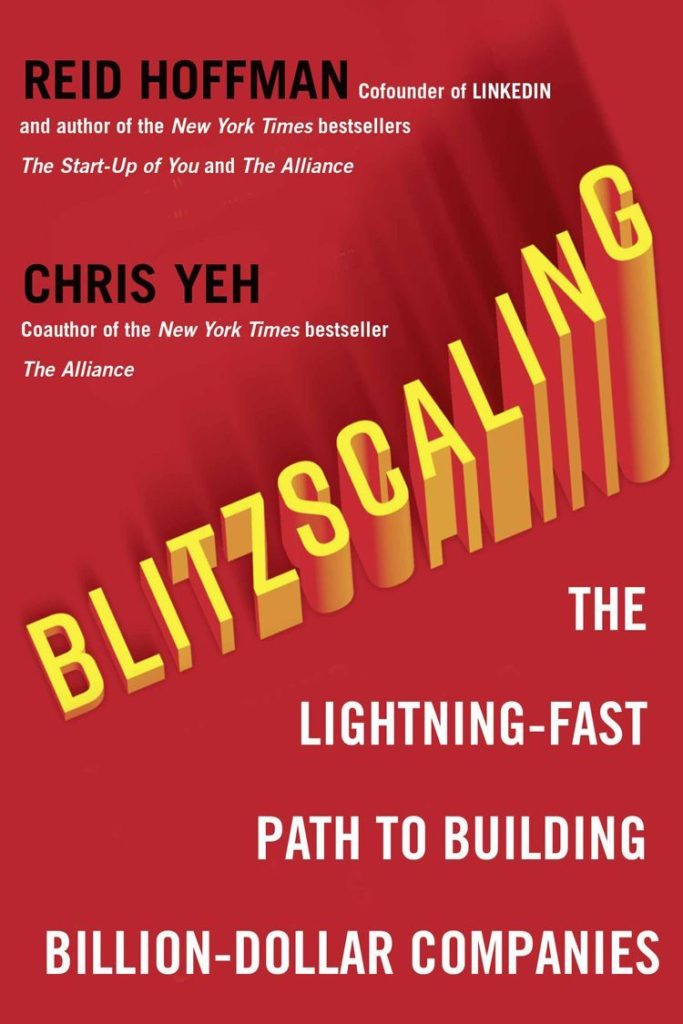
JANUARY – 6 BOOKS
L’entraide : L’autre loi de la jungle” by Pablo Servigne and Gauthier Chapelle.
Since my discovery of Pablo Servigne, I try to read and listen to all of what he produces. He manages to make us understand complicated things about where our world is going. I loved the round trips and parallels that Pablo and Gauthier make between nature and our society.
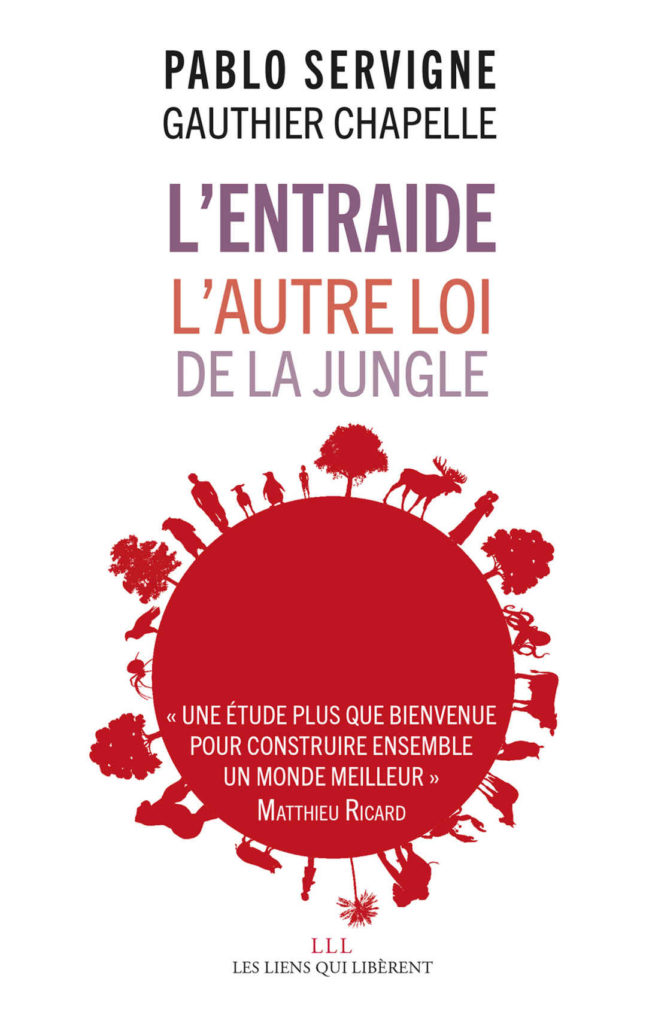
Born to Run: The hidden tribe, the ultra-runners, and the greatest race the world has never seen by Christopher McDougall.
I had a hard time hanging on at first. The author alternates between chapter “fictionalized history” and chapter “analysis of running”. Towards the middle of the book, everything accelerates with the meeting with Caballo Blanco. The “running chapters” are just amazing and exciting. This book completely changed (for the better) my perception of running.
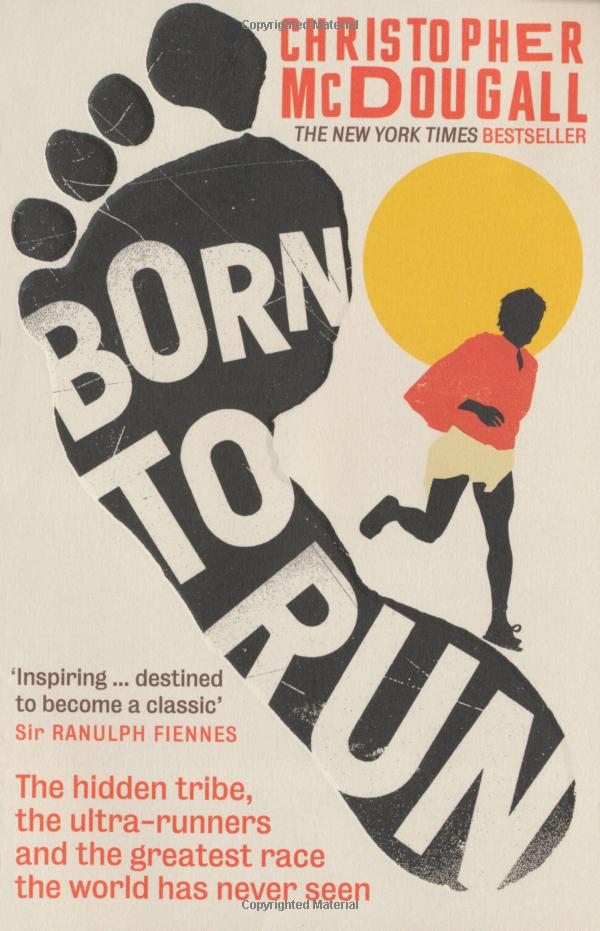
Atomic Habits: An Easy & Proven Way to Build Good Habits & Break Bad Ones de James Clear
This book has just entered my TOP5! It is a more current and pragmatic version of the “power of habits” by Charles Duhigg. James Clear explains “the four laws of behavior change”: 1 / make it obvious 2 / make it attractive 3 / make it easy 4 / make it satisfying. It also explains the importance of the context on our motivation and the famous rule of 2 minutes (which I have used personally for a few years)
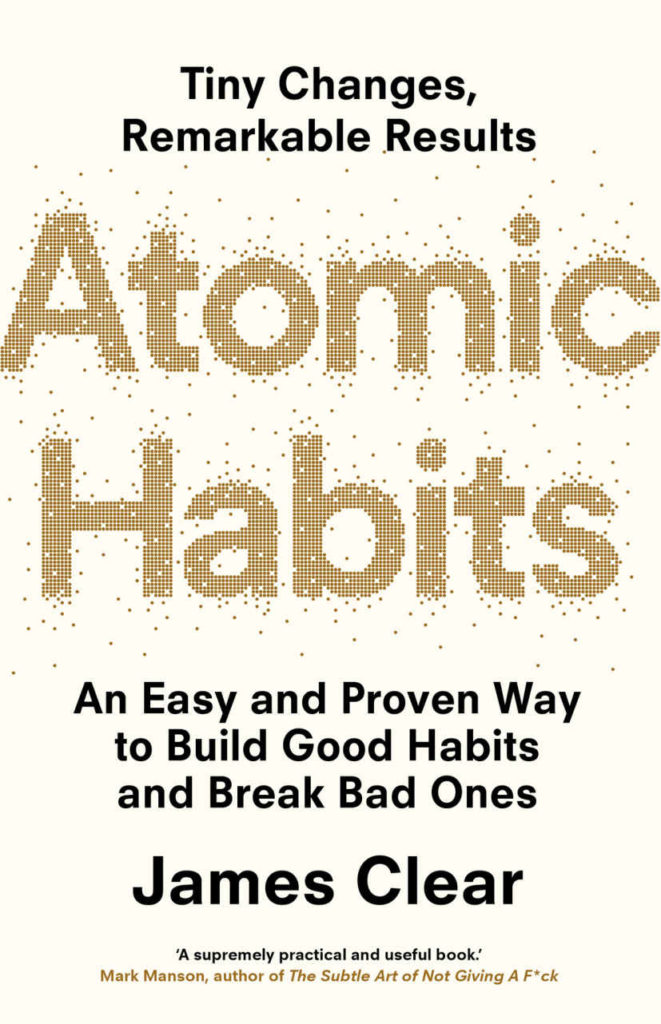
Entrepreneur Revolution: How to develop your entrepreneurial mindset and start a business that works de Daniel Priestley
I moderately hung with this book. I recommend it only for people who want to become an entrepreneur. Being already an entrepreneur, I found that he broke down a lot of open doors.
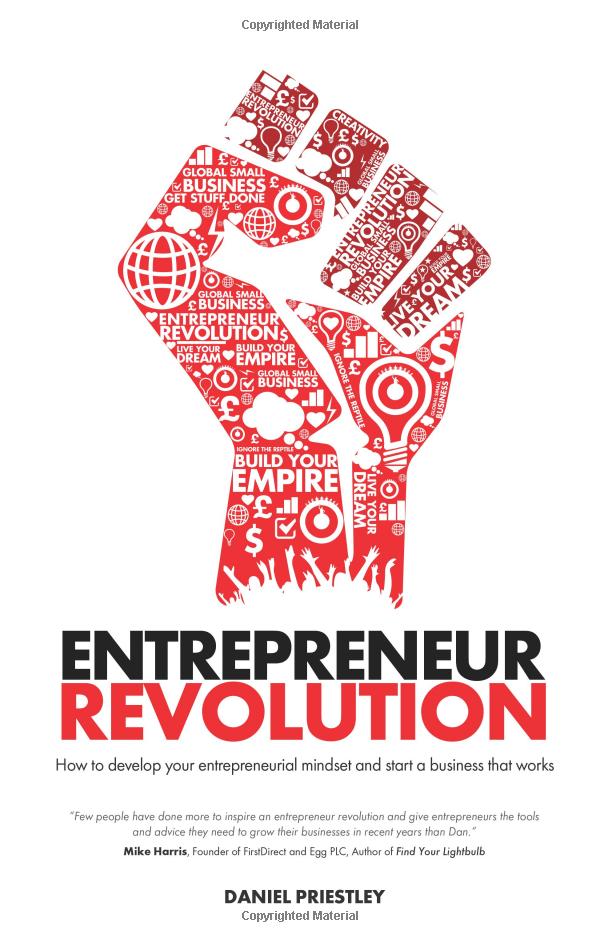
100 Simple Secrets of Great Relationships de David Niven
Big fail on my part on this reading. Basically, I wanted to read “The 100 Simple Secrets of Successful People” and I misread when I bought it on Kindle. As a result, I found myself reading a book on romantic relationships. I went all the way and I didn’t learn much…
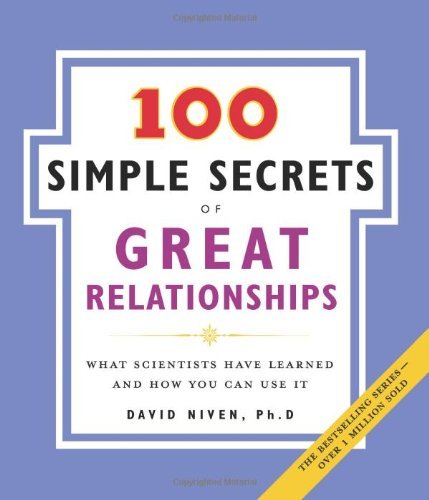
The Obstacle is the Way: The Ancient Art of Turning Adversity to Advantage de Ryan Holiday
I have rarely highlighted so many interesting passages in a book. Ryan explains how to change his vision of the obstacles we encounter on our way. The 3 main chapters are: the discipline of perception, the discipline of action and the discipline of will. I came across this book while being interested in Stoicism. If this tickles your curiosity, I highly recommend this blog: DailyStoic
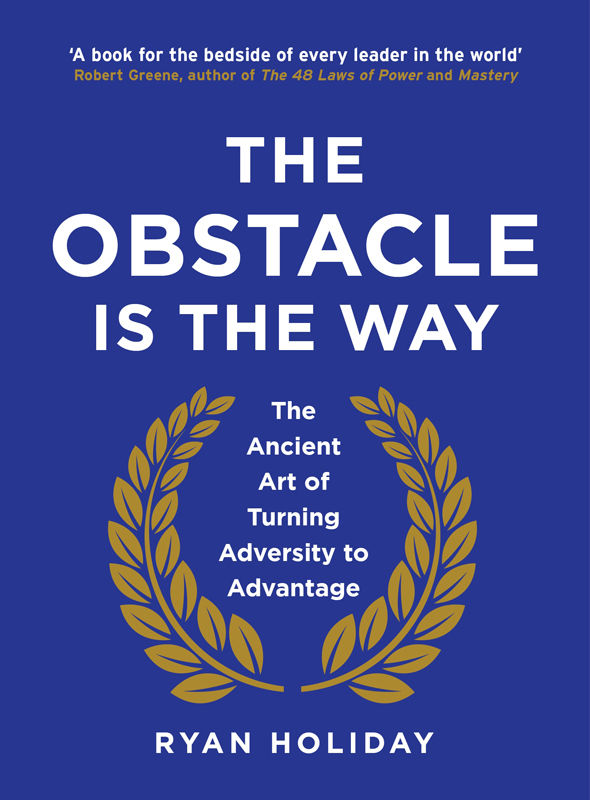


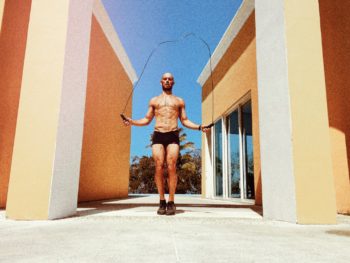
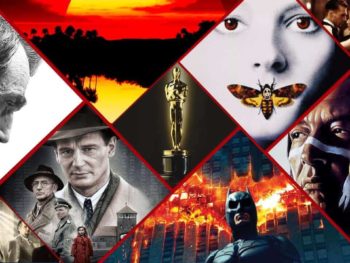
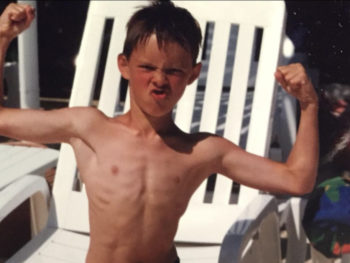
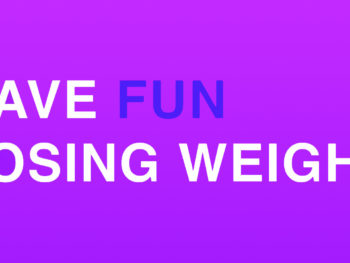
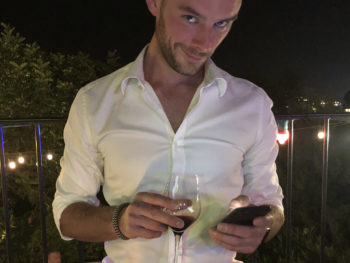
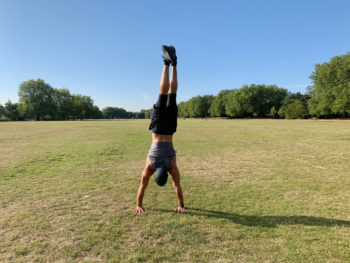

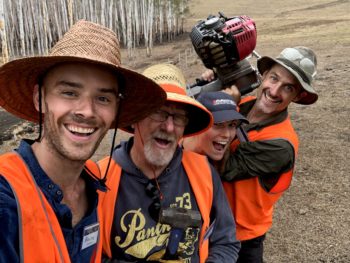

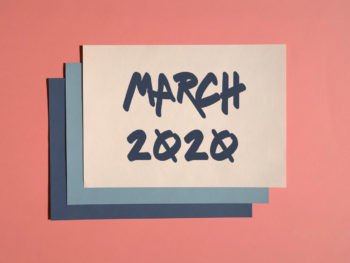
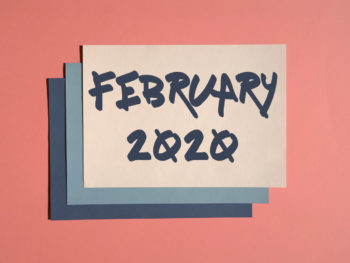
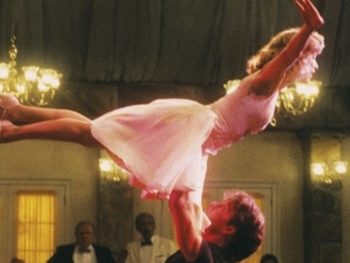
 #61 – Holding a handstand without moving (20sec)
#61 – Holding a handstand without moving (20sec)